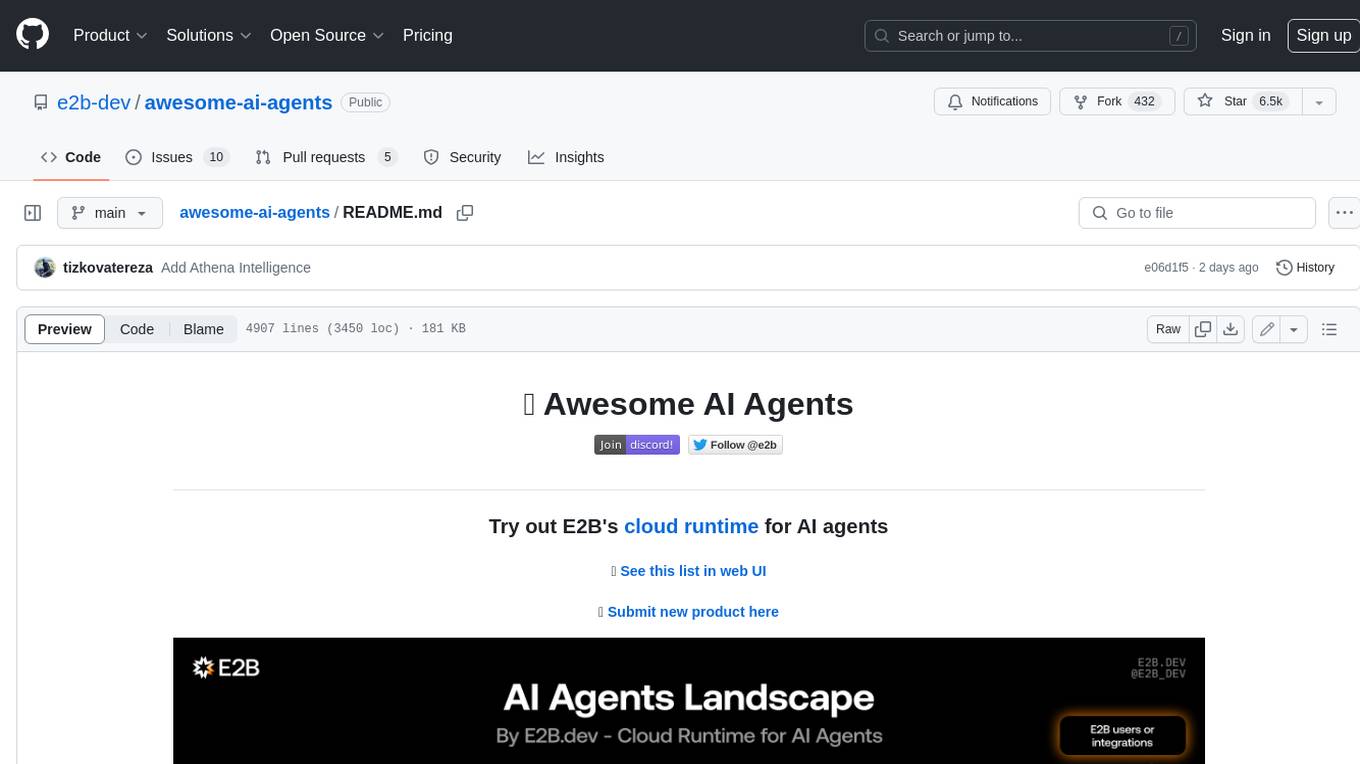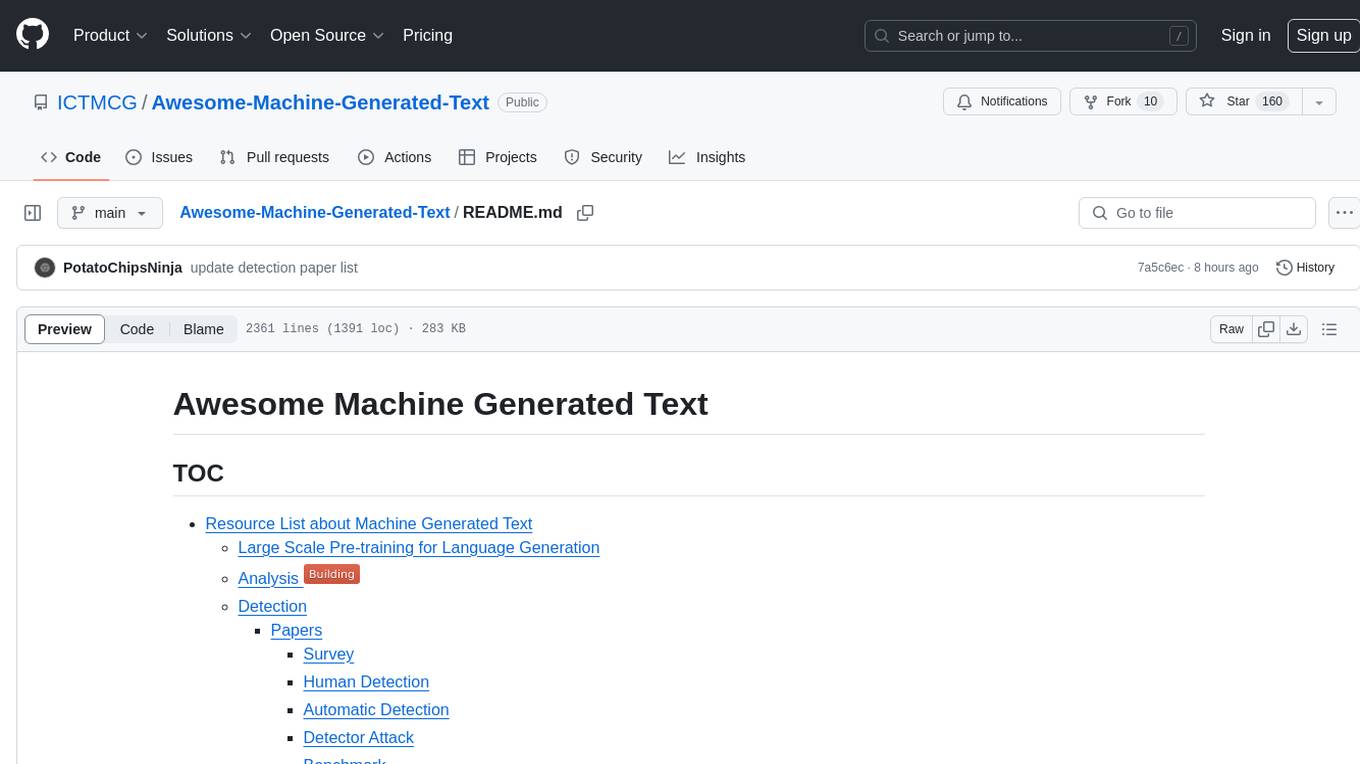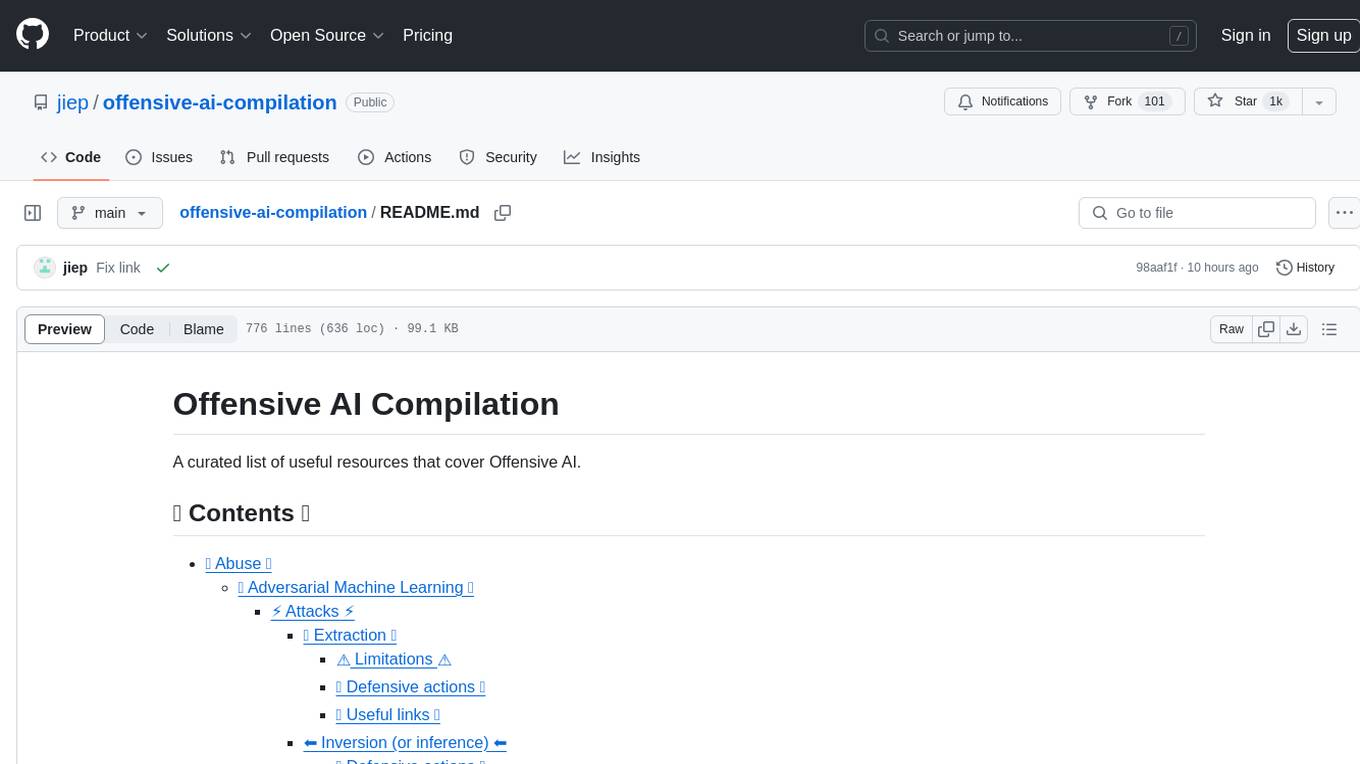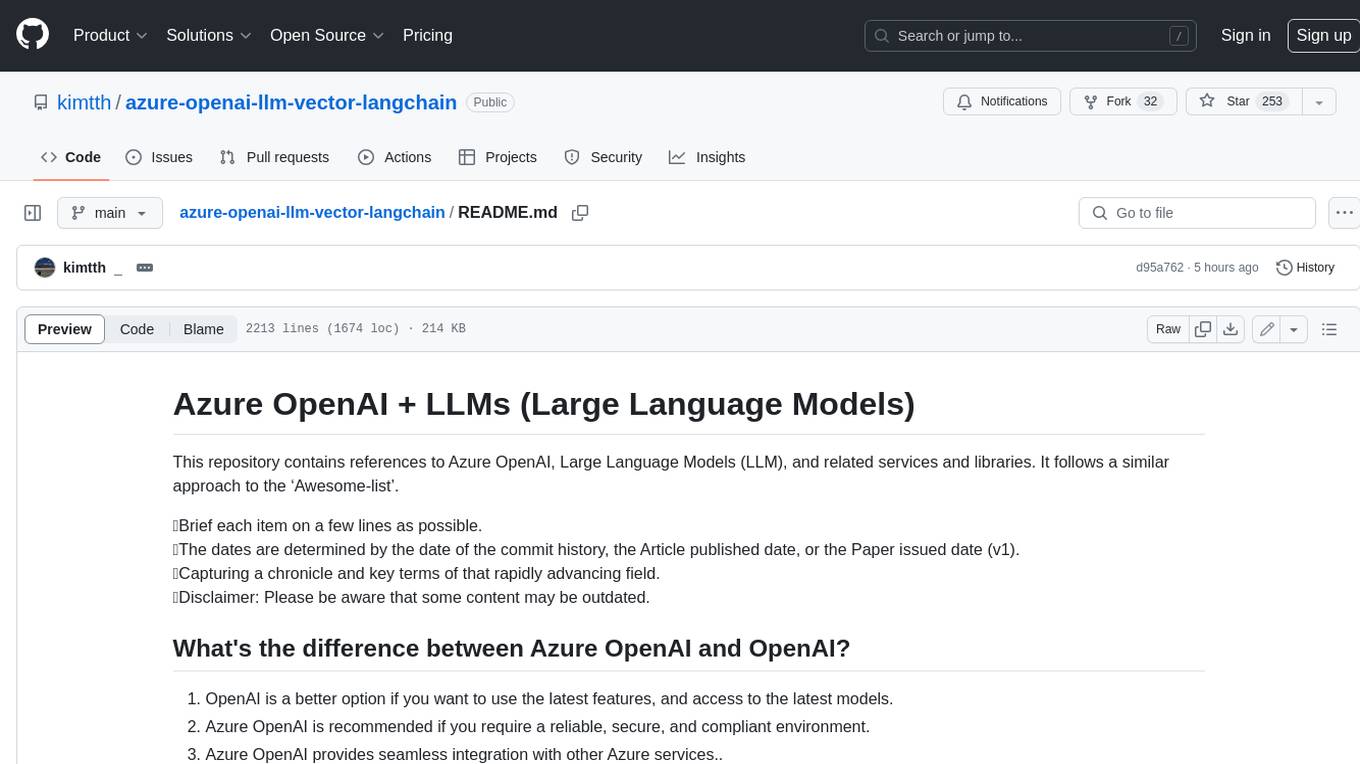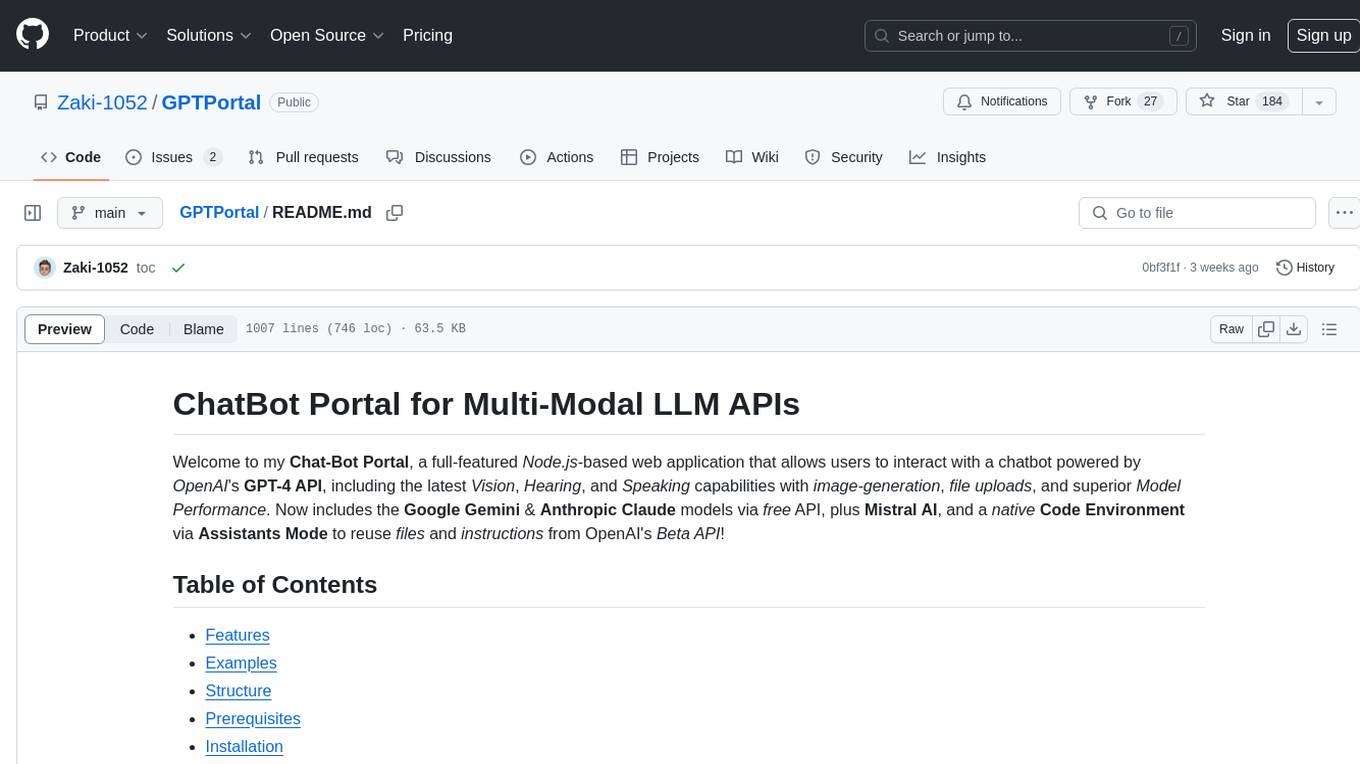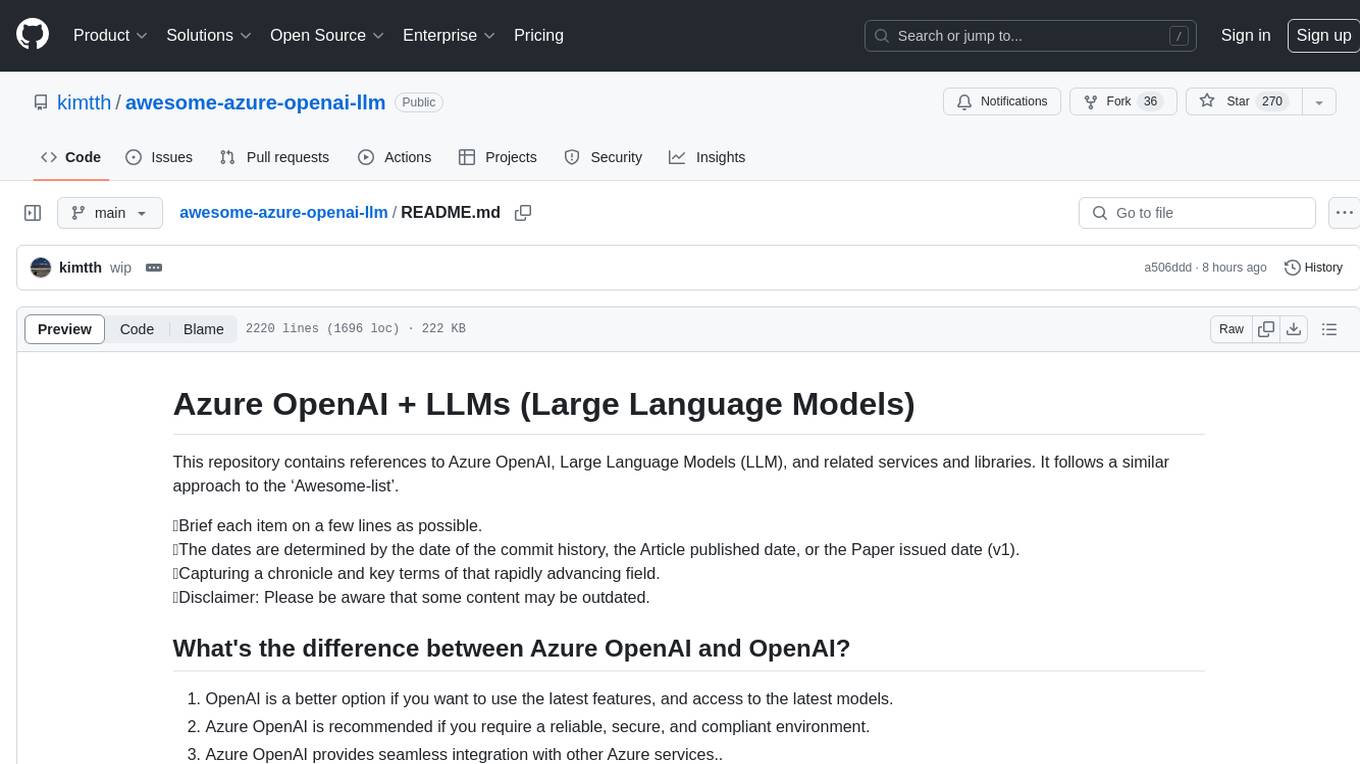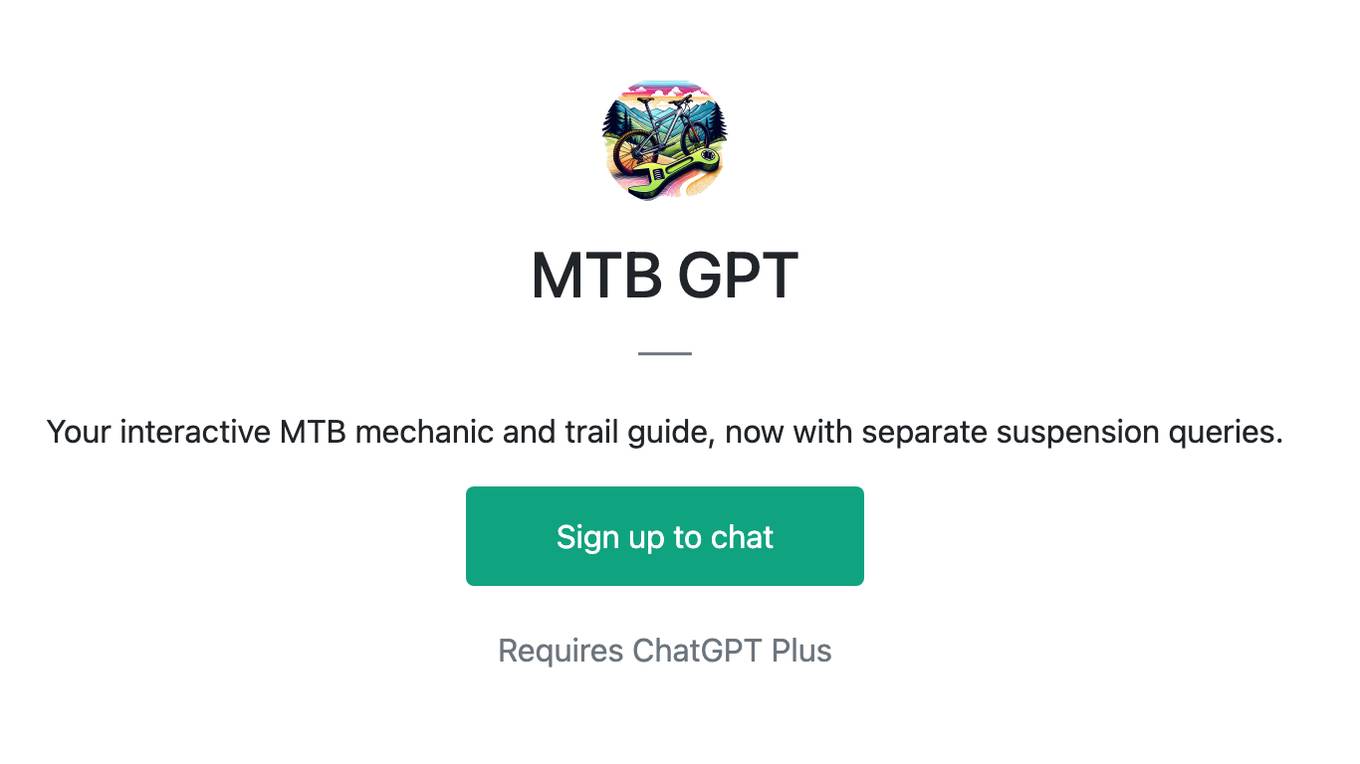Best AI tools for< separate information from knowledge >
20 - AI tool Sites

K3.io
K3.io is an AI-powered platform that helps individuals, teams, and enterprises evolve and prosper in the transition to the AI era. It offers a range of services, including consulting, AI tools, and the K3 LMS (Learning Management System). With K3.io, users can create quizzes based on any video, validate learning, and separate information from knowledge. The platform is designed to make learning simple and effective.
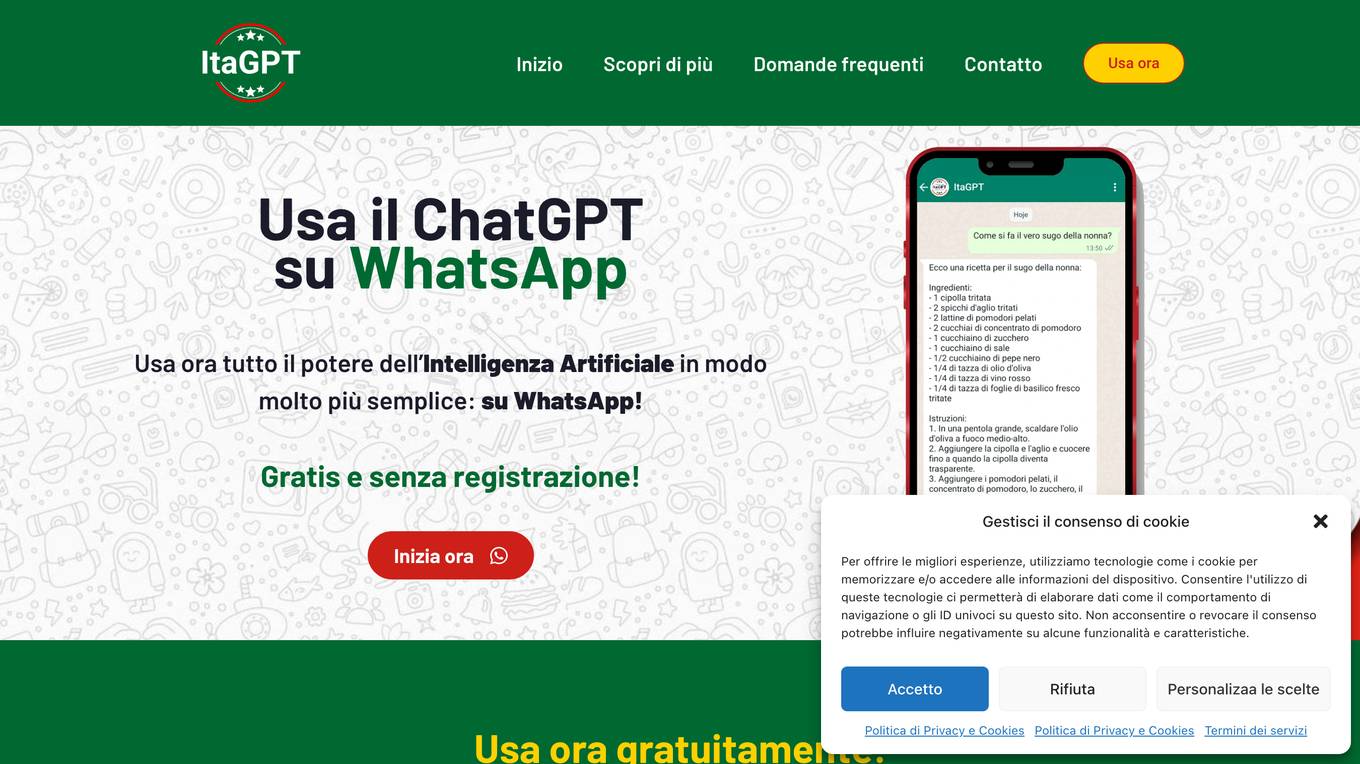
ItaGPT
ItaGPT is a service that connects ChatGPT and WhatsApp, allowing users to chat with ChatGPT and receive immediate answers to their questions directly on their phone. Users can access the service by sending a message on WhatsApp to ItaGPT, just like with any other contact. ItaGPT offers a range of advantages, including immediate responses on WhatsApp without the need for separate apps or websites, no registration required, and no credit card usage. It uses natural and intuitive language to provide answers, making the user experience simple and intuitive. ItaGPT can answer a variety of questions on different topics, but its responses are based on internet content up to 2021.
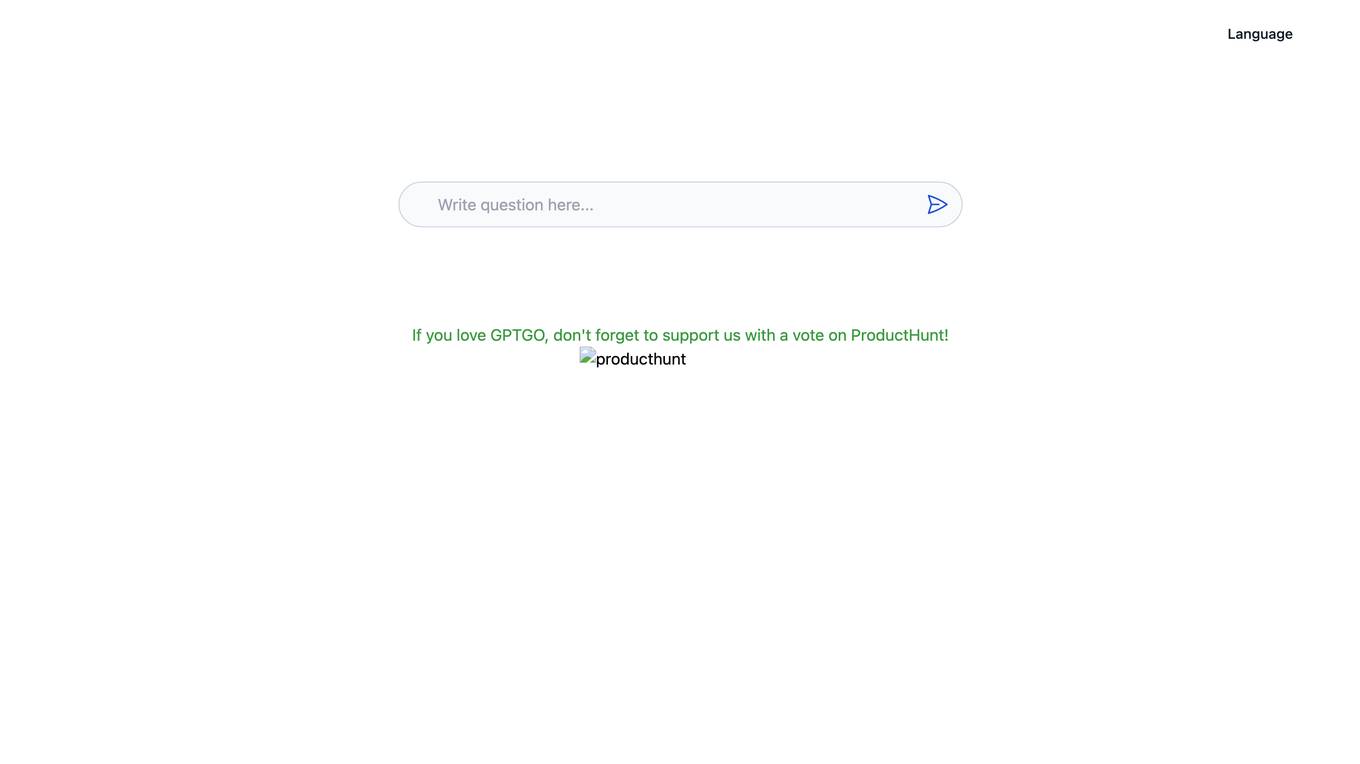
GPTGO
GPTGO is a free search engine that combines traditional search results with ChatGPT responses. It offers a seamless integration of search and chat, providing users with comprehensive and accurate information. GPTGO eliminates the need for separate ChatGPT accounts and provides unlimited access to a premium ChatGPT account. It is compatible with various devices and browsers, ensuring accessibility and convenience. GPTGO prioritizes user privacy and security, ensuring that all user actions remain anonymous and protected.

MonAi
MonAi is an AI-powered expense tracker that simplifies the process of recording expenses by allowing users to input data in a conversational manner, similar to sending a voice message to a friend. The AI technology automatically categorizes and summarizes the expenses, eliminating the need for manual data entry. Users can securely store their financial information in their private iCloud account without the need for a separate login. Additionally, MonAi enables users to easily share and collaborate on expense tracking. With a user-friendly interface and advanced AI capabilities, MonAi revolutionizes the way individuals manage their finances.
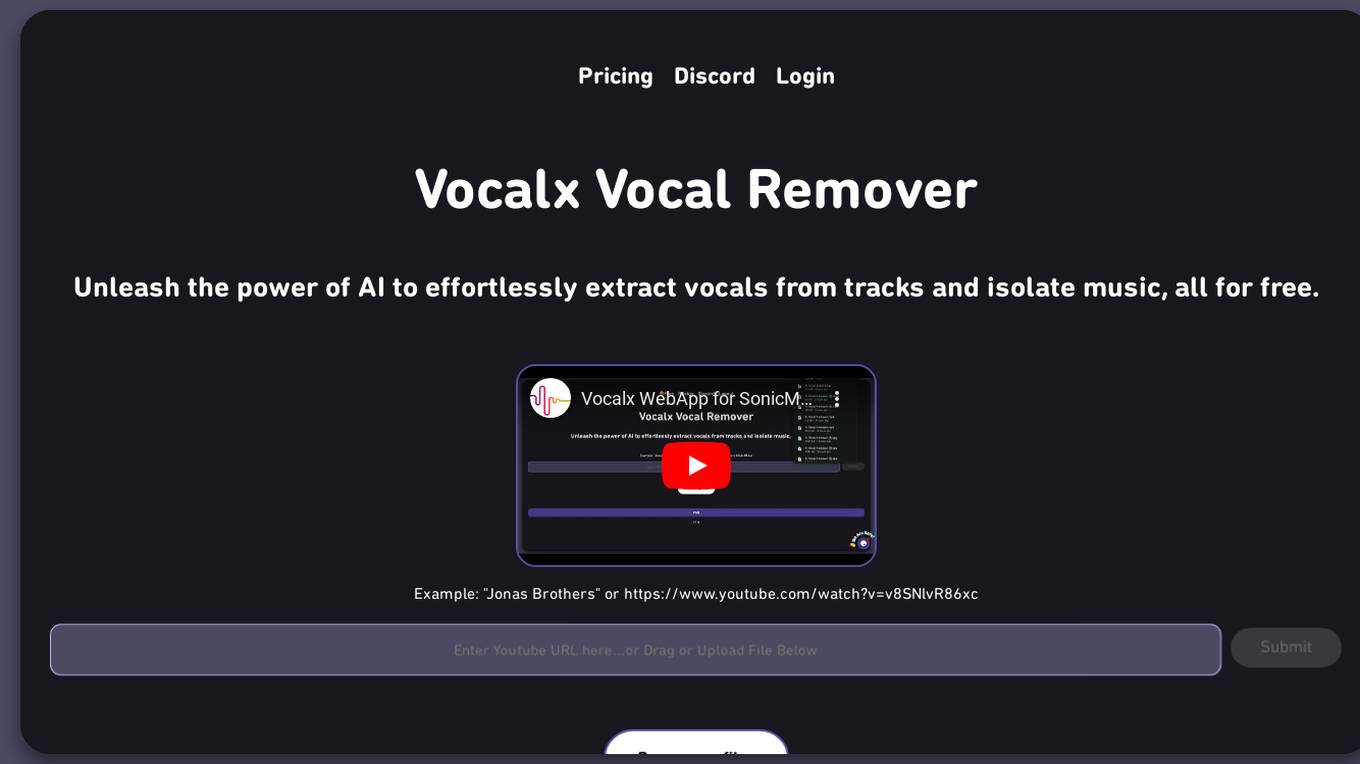
Vocalx
Vocalx is an AI-powered online tool that converts text into natural-sounding speech. It utilizes advanced speech synthesis technology to generate lifelike voices for various applications. Users can easily create audio content from written text, making it ideal for content creators, educators, and businesses looking to enhance their multimedia offerings. With Vocalx, you can customize the voice, tone, and speed of the generated speech to suit your needs. The tool supports multiple languages and accents, providing a versatile solution for voiceover projects, audiobooks, podcasts, and more.
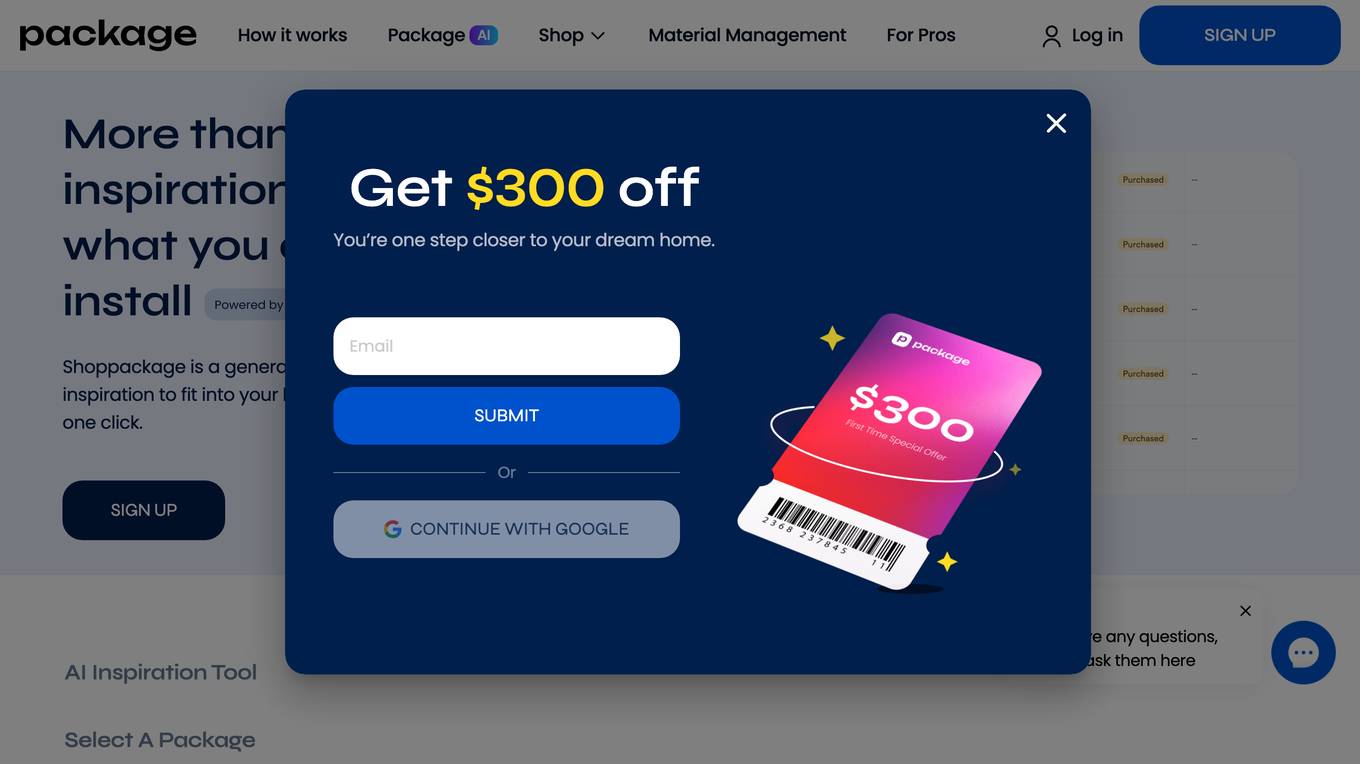
Package
Package is a generative AI rendering tool that helps homeowners envision different renovation styles, receive recommended material packages, and streamline procurement with just one click. It offers a wide range of design packages curated by experts, allowing users to customize items to fit their specific style. Package also provides 3D renderings, material management, and personalized choices, making it easy for homeowners to bring their design ideas to life.

AudioShake
AudioShake is a cloud-based audio processing platform that uses artificial intelligence (AI) to separate audio into its component parts, such as vocals, music, and effects. This technology can be used for a variety of applications, including mixing and mastering, localization and captioning, interactive audio, and sync licensing.
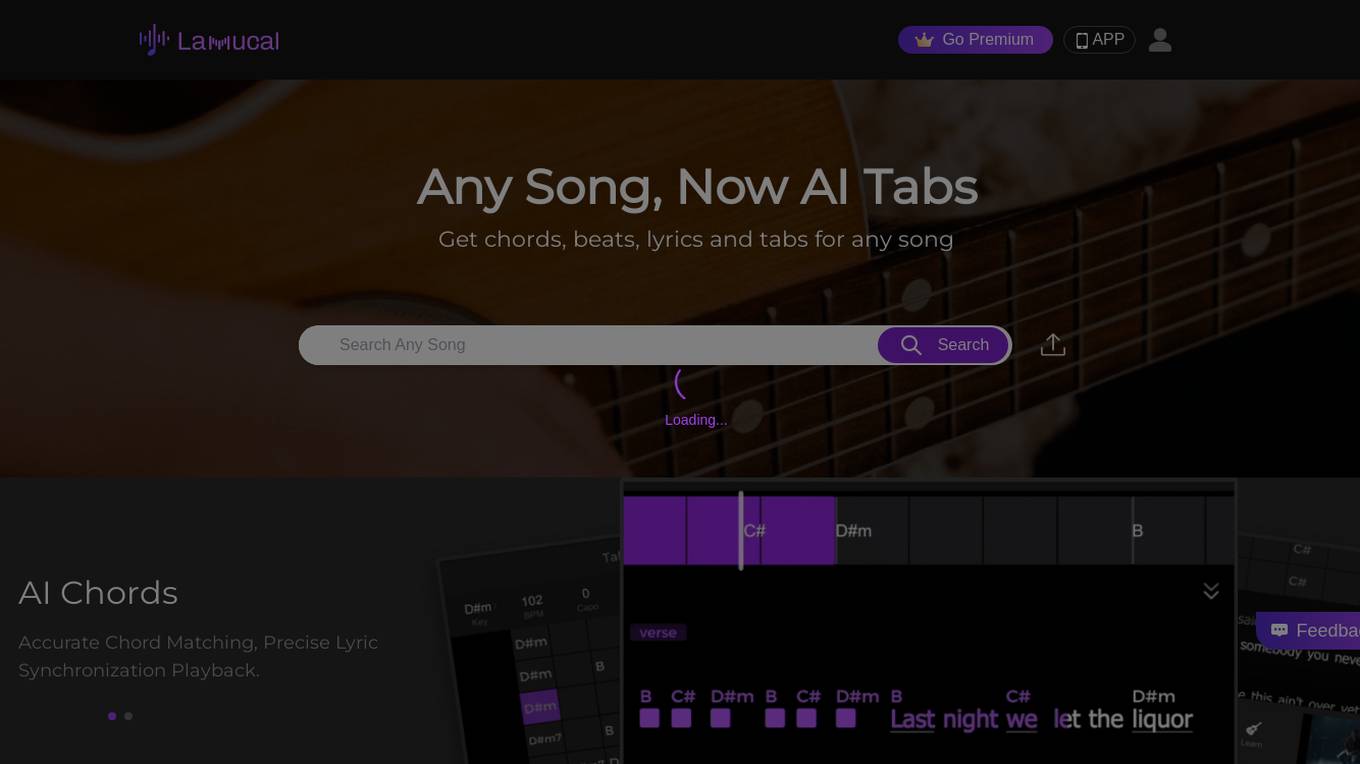
Lamucal
Lamucal is an AI-powered music application that provides users with accurate chords, beats, lyrics, and tabs for any song. It features AI-generated rhythm patterns and precise lyric synchronization, making it an invaluable tool for musicians and music enthusiasts alike. With Lamucal, users can easily find and play their favorite songs, explore new music, and improve their musical skills.
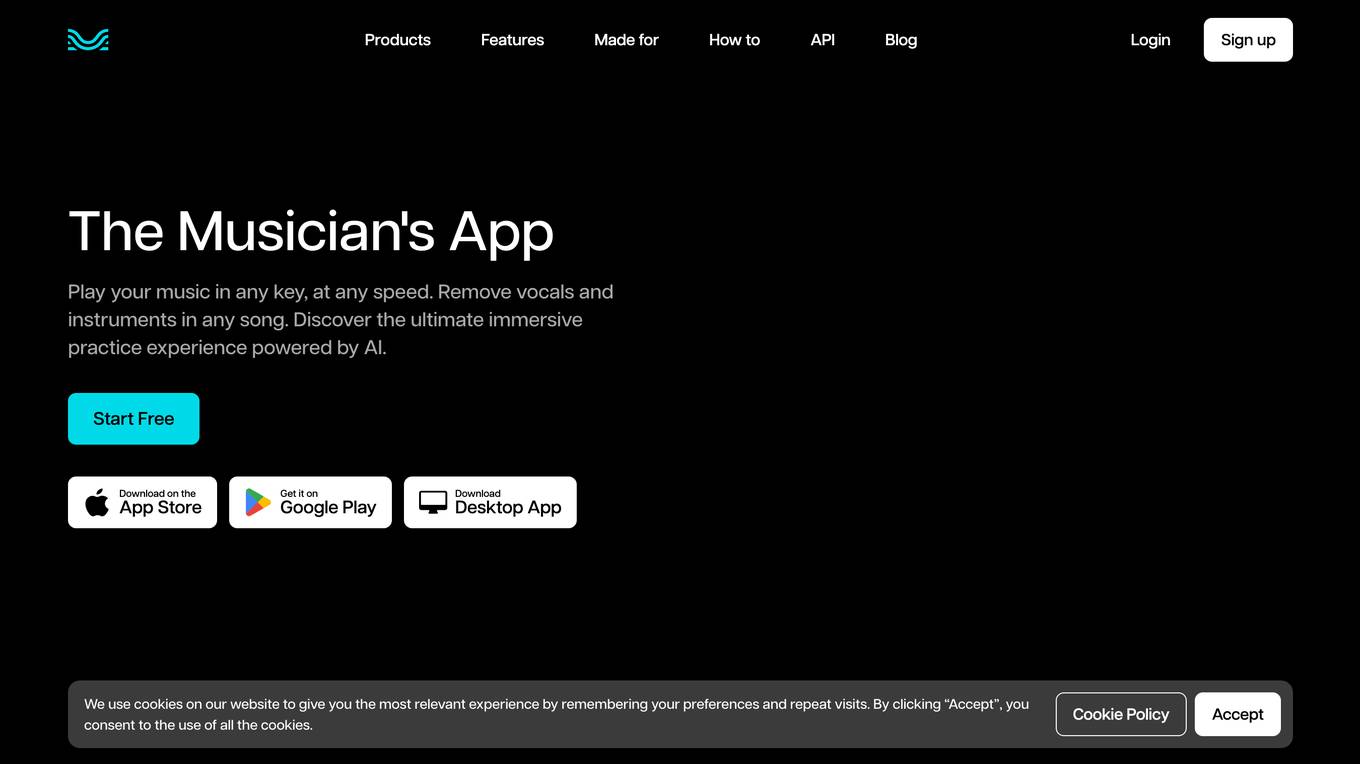
Moises App
Moises App is a music application powered by AI that provides musicians with a range of tools to enhance their practice and performance. With Moises App, users can separate vocals and instruments in any song, adjust the speed and pitch, and detect chords in real time. The app also includes a smart metronome and audio speed changer, making it an ideal tool for musicians of all levels. Moises App is available as a desktop application, iOS app, and web app, making it accessible to musicians on any device.
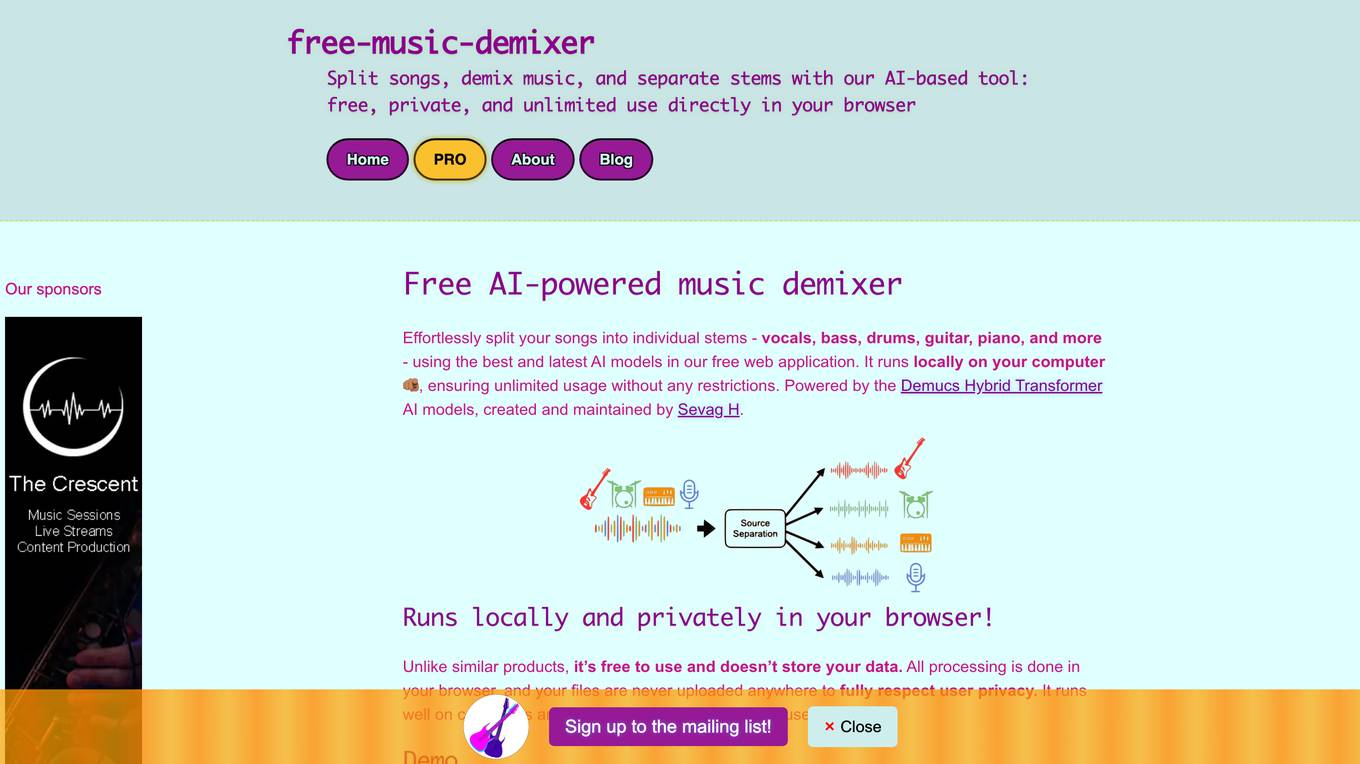
Free Music Demixer
Free Music Demixer is an AI-powered web application that allows users to effortlessly split songs into individual stems such as vocals, bass, drums, and melody. It utilizes the Demucs Hybrid Transformer AI model to provide high-quality demixing directly in the browser, ensuring unlimited usage without any restrictions. The application runs locally on the user's computer, prioritizing data privacy by not storing any user data and processing all operations within the browser. Users can access additional features and instruments by subscribing to the PRO version, which includes a deluxe subscription and an Android app.
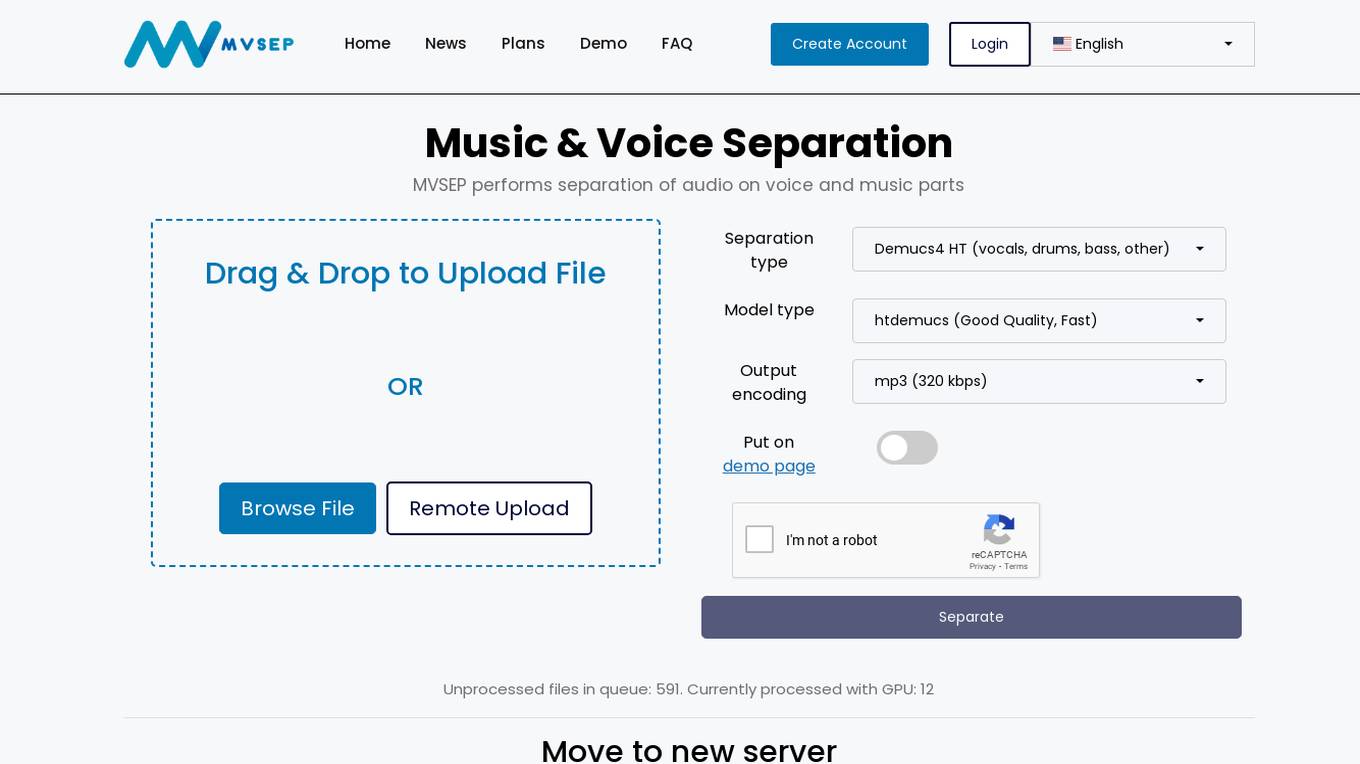
MVSEP - Music & Voice Separation
MVSEP is an AI-powered application that specializes in music and voice separation. It offers users the ability to separate audio files into voice and music parts using advanced algorithms and models. Users can easily upload files through drag and drop or remote upload features. The application provides various separation types, HQ models, and output encoding options to cater to different user needs. MVSEP aims to enhance the audio editing experience by providing high-quality results and a user-friendly interface.
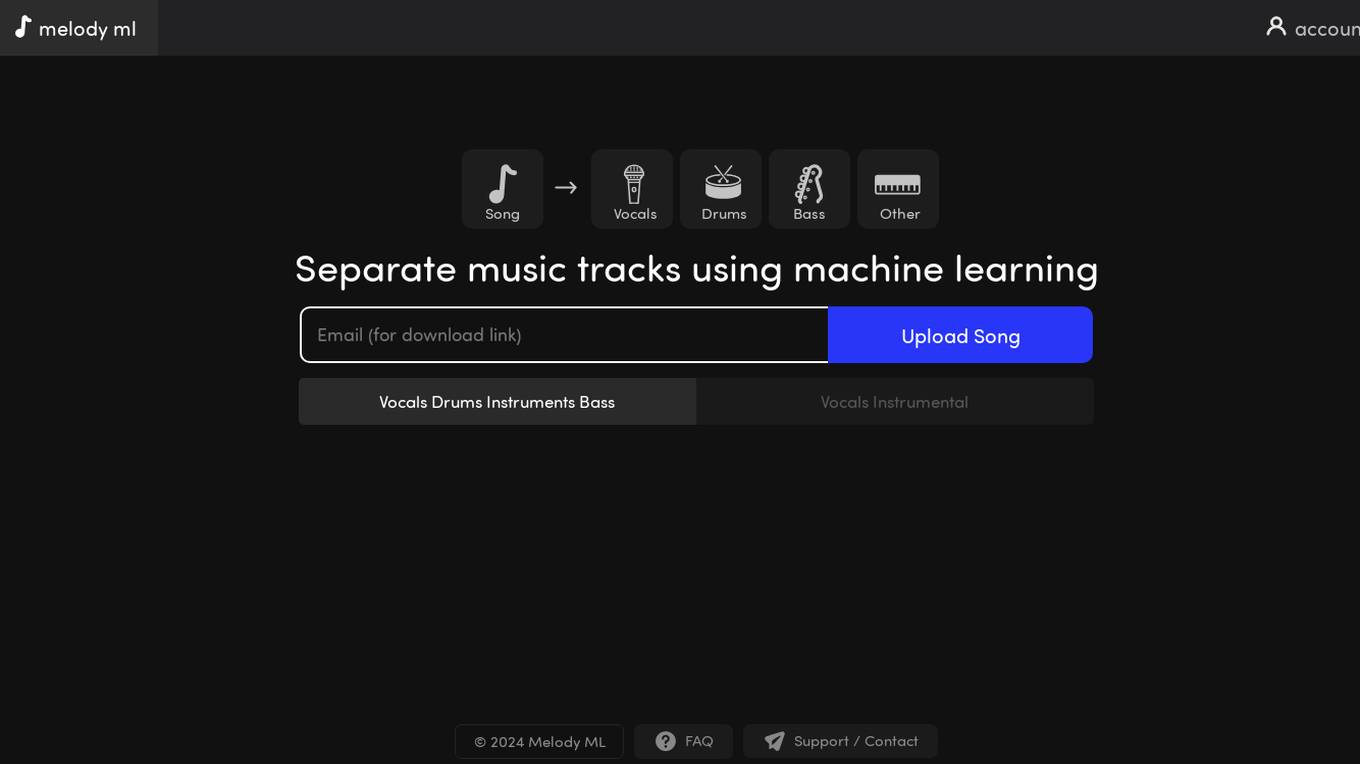
Melody ML
Melody ML is an AI-powered music processing tool that allows users to separate music tracks using machine learning technology. Users can upload songs, and the tool uses AI algorithms to extract vocals, drums, bass, and other instruments into separate stems. Melody ML offers a user-friendly platform for music enthusiasts, producers, and artists to enhance their music production process.
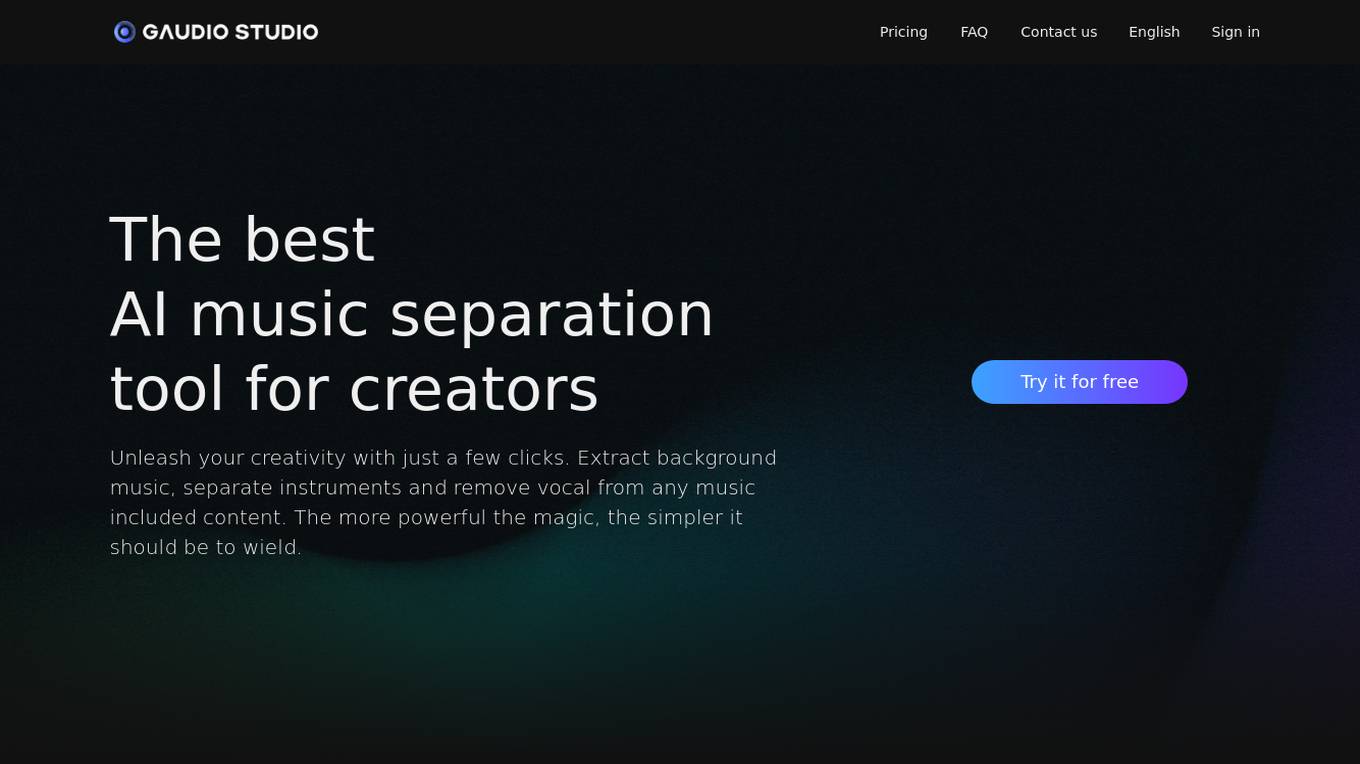
Gaudio Studio
Gaudio Studio is an AI music separation tool designed for creators to unleash their creativity with ease. It allows users to extract background music, separate instruments, and remove vocals from any music content. Powered by GSEP (Gaudio source SEParation), a high-quality and easy-to-use AI stem separation model, Gaudio Studio offers a seamless experience for audio separation. Users can upload their songs in various formats, access the tool from desktop or mobile devices, and enjoy Studio Plans for advanced processing. Additionally, Gaudio Studio can be integrated with cloud APIs and On-device SDKs for business applications, offering a versatile solution for music professionals and enthusiasts.
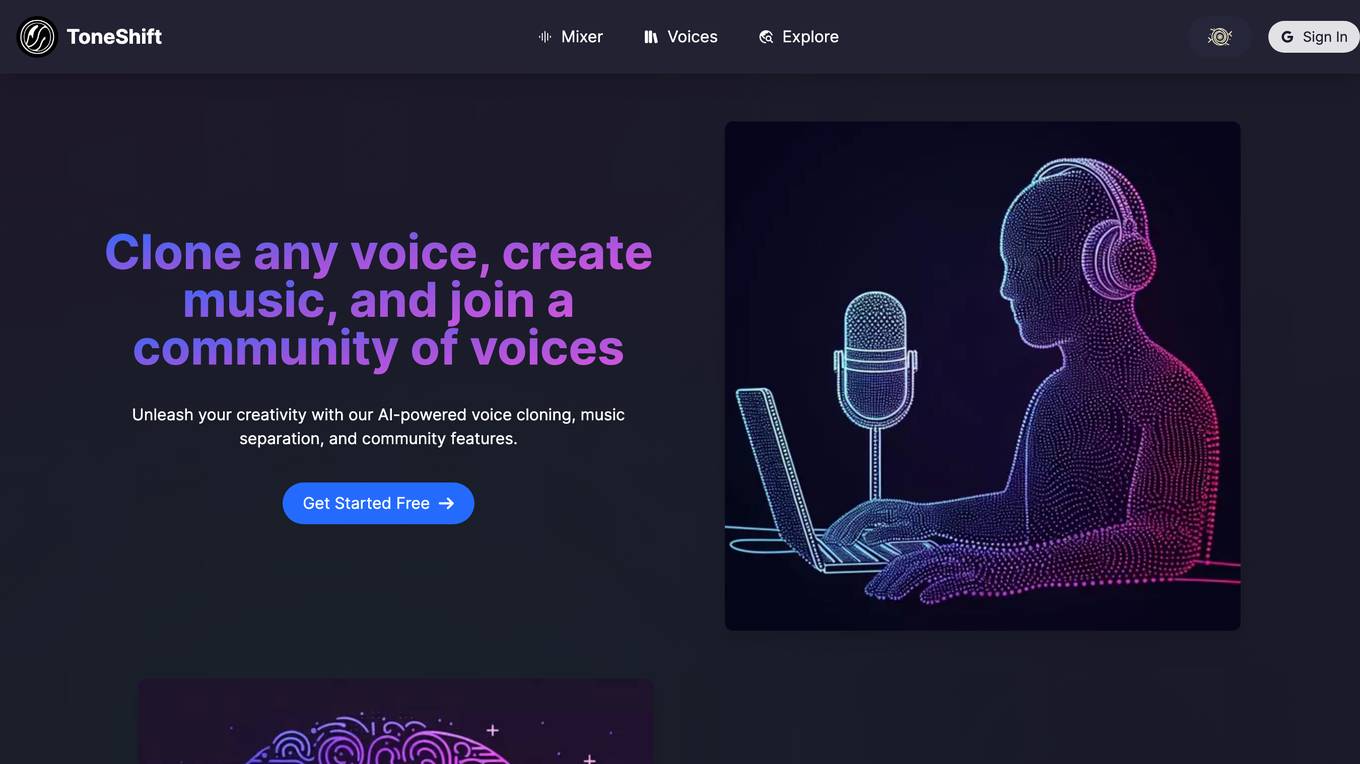
ToneShift
ToneShift is an AI-powered platform that allows users to clone voices, separate music, and join a community of voices. With ToneShift, users can transform recordings into versatile voices for various purposes, separate vocals and instrumentals from songs to create new remixes and mashups, and join a community to discover new tones, contribute their creations, and collaborate with others.

AI Phone
AI Phone is a mobile application that uses artificial intelligence to simplify and enhance phone calls. It offers real-time transcription, AI-generated summaries, call highlights, keyword detection, and a separate US phone number for work-life balance. The AI chat assistant can correct messages, provide recommendations, and suggest replies, reducing communication stress.
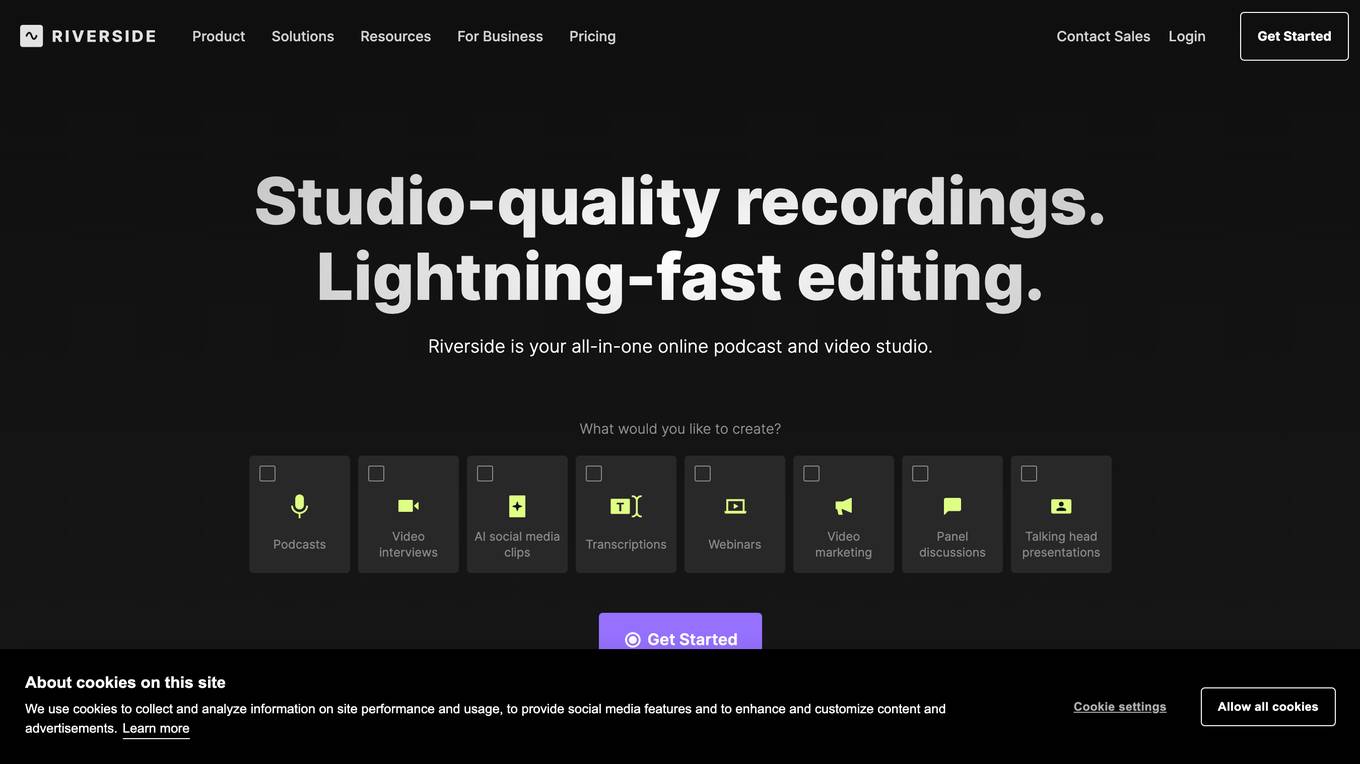
Riverside
Riverside is an online podcast and video studio that makes recording and editing at the highest quality possible, accessible to anyone. It offers features such as separate audio and video tracks, AI-powered transcription and captioning, and a text-based editor for faster post-production. Riverside is designed for individuals and businesses of all sizes, including podcasters, video creators, producers, and marketers.

AudioStrip
AudioStrip is a free online vocal isolator that allows you to remove vocals from any song. It uses artificial intelligence to separate the vocals from the music, and it does a surprisingly good job. You can use AudioStrip to create a cappella versions of your favorite songs, or you can use it to isolate the vocals from a song so that you can sing along with them. AudioStrip is easy to use. Just upload a song to the website, and then click the "Extract Vocals" button. AudioStrip will then process the song and create a new file that contains only the vocals. You can then download the new file to your computer.
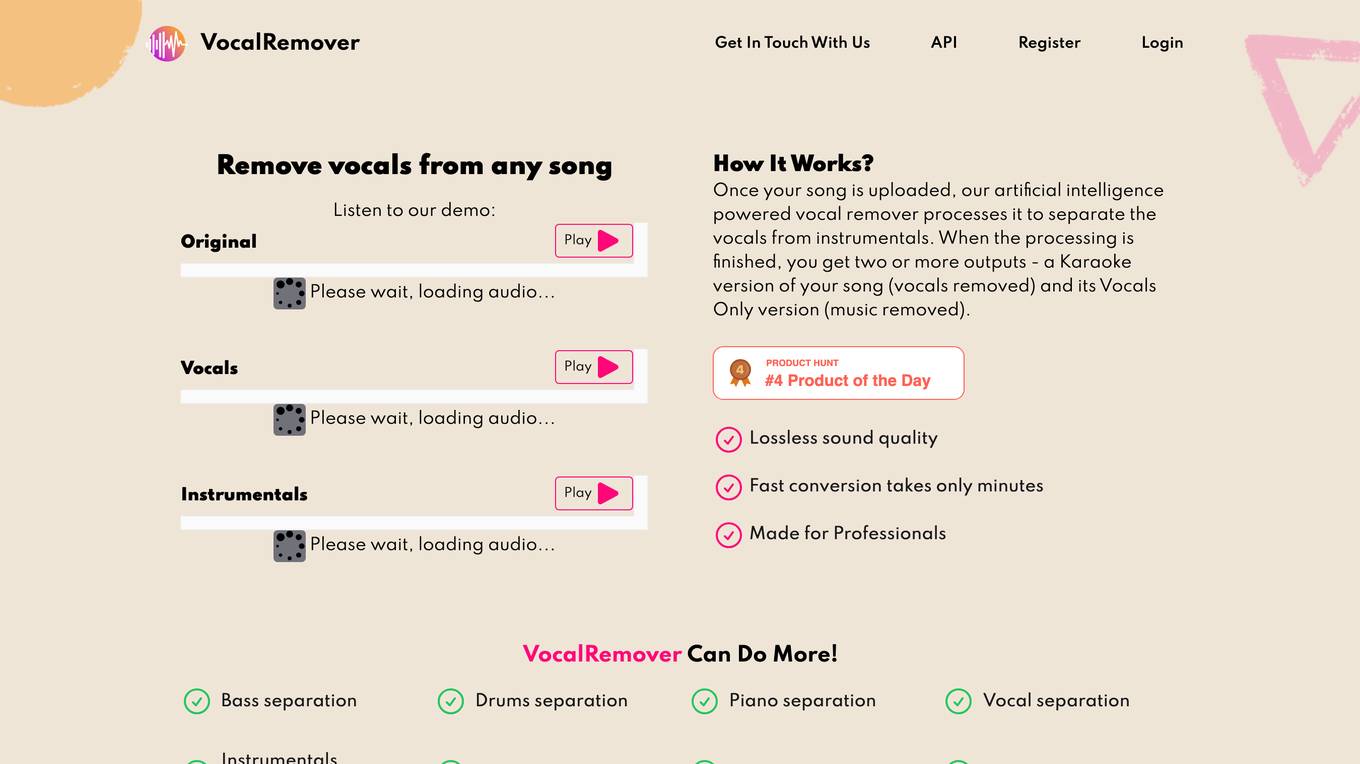
VocalRemover
VocalRemover is an online tool that uses artificial intelligence to remove vocals from any music track. It is easy to use, simply upload your song and the AI will process it to separate the vocals from the instrumentals. You can then download the resulting karaoke version or vocals-only version of your song. VocalRemover is a great tool for musicians, singers, and anyone who wants to create their own karaoke tracks.
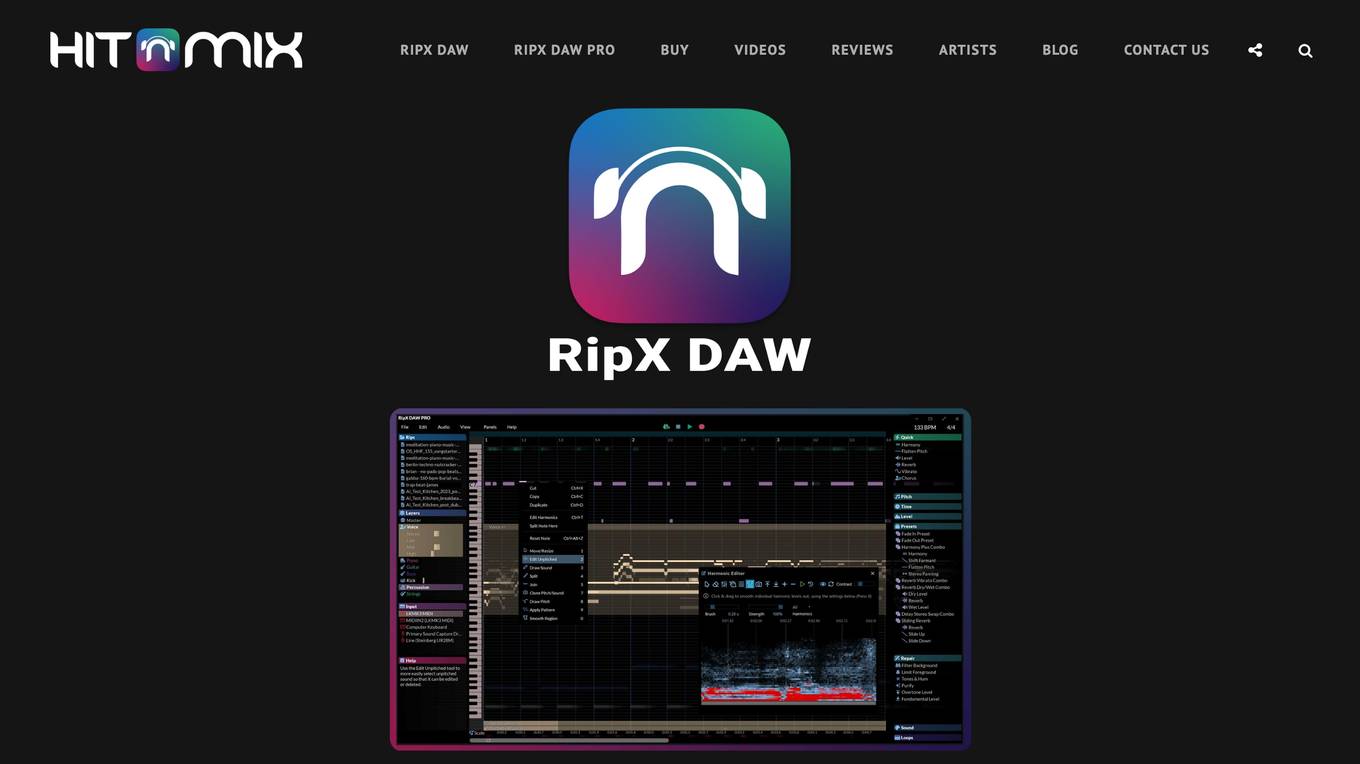
RipX DAW
RipX DAW is an AI-powered digital audio workstation (DAW) that allows users to edit notes in the mix, replace sounds, and separate stems. It is designed to assist musicians and producers in creating and editing music using AI-generated samples and loops. RipX DAW is known for its advanced features such as 6+ stem separation, sound replacement menu, and the ability to edit notes in the mix.
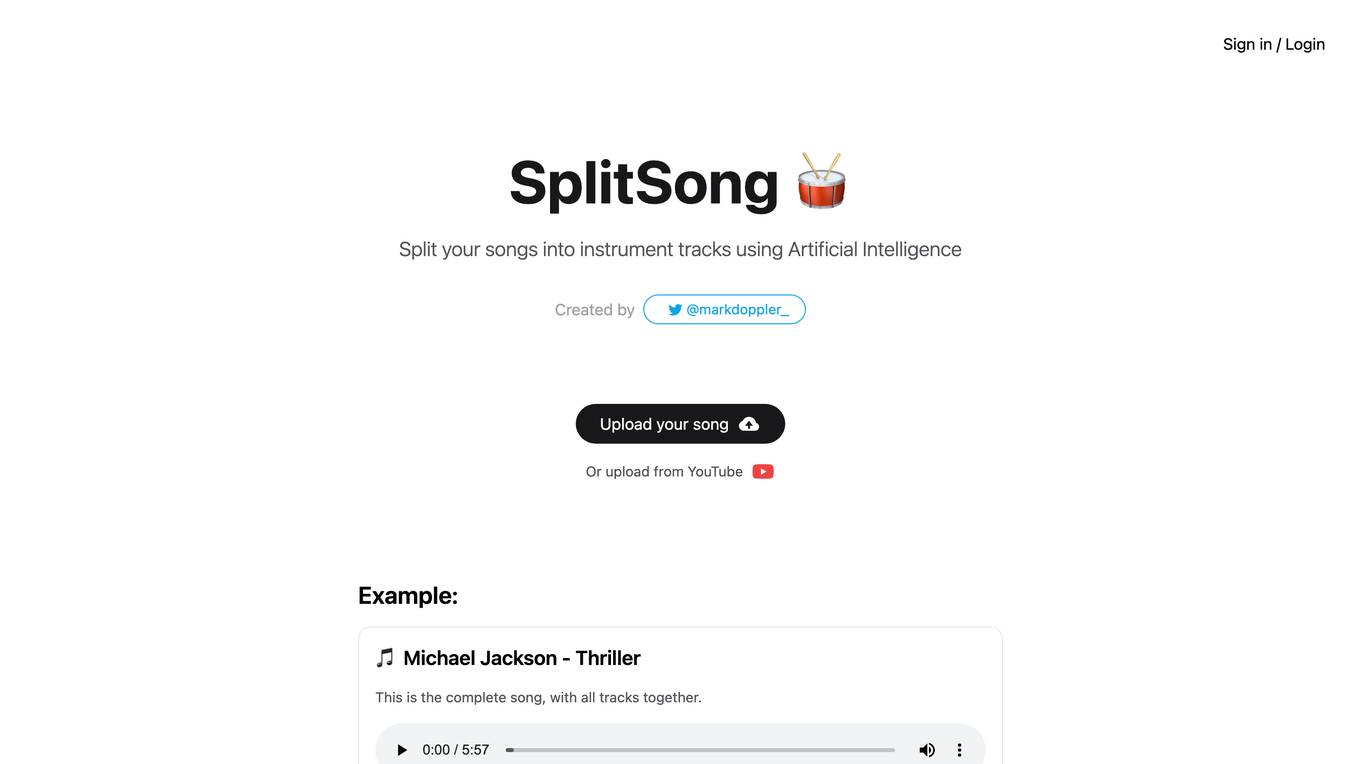
SplitSong.com
SplitSong.com is an AI tool that allows users to split songs into individual instrument tracks using Artificial Intelligence. Created by @markdoppler_, this tool enables users to upload songs or extract them from YouTube videos and separate them into specific instrument tracks such as drums, keyboards, guitars, bass, and vocals. With a user-friendly interface, SplitSong.com provides a convenient way for music enthusiasts, producers, and musicians to access and download isolated instrument tracks for remixing, sampling, or learning purposes.
20 - Open Source AI Tools
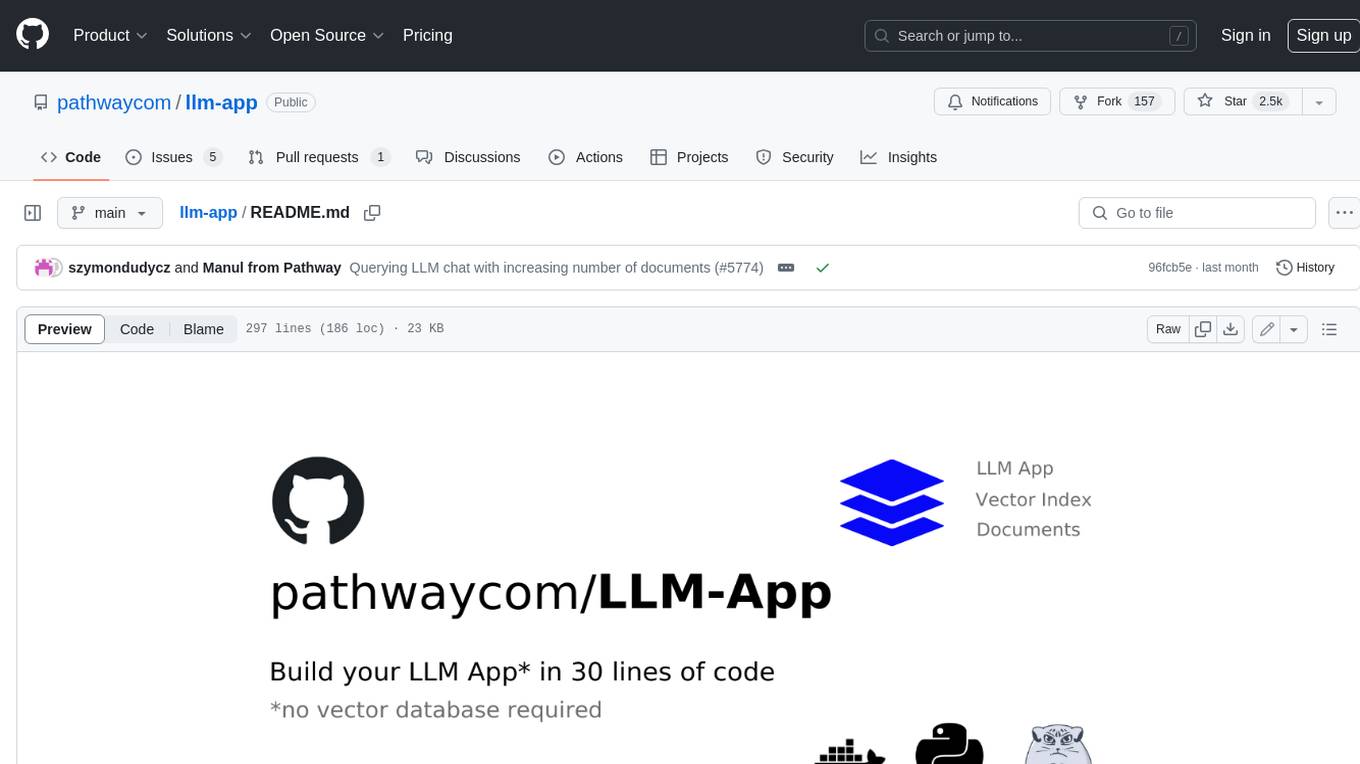
llm-app
Pathway's LLM (Large Language Model) Apps provide a platform to quickly deploy AI applications using the latest knowledge from data sources. The Python application examples in this repository are Docker-ready, exposing an HTTP API to the frontend. These apps utilize the Pathway framework for data synchronization, API serving, and low-latency data processing without the need for additional infrastructure dependencies. They connect to document data sources like S3, Google Drive, and Sharepoint, offering features like real-time data syncing, easy alert setup, scalability, monitoring, security, and unification of application logic.
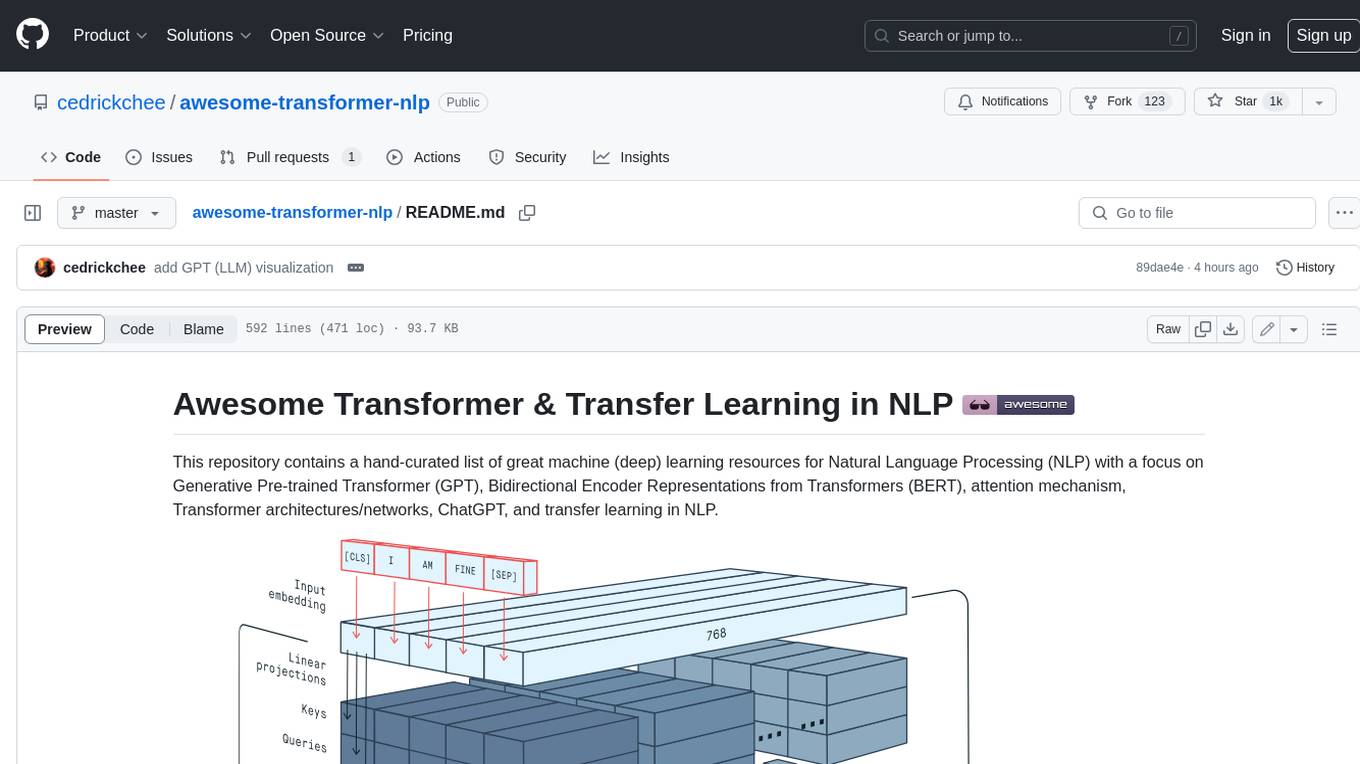
awesome-transformer-nlp
This repository contains a hand-curated list of great machine (deep) learning resources for Natural Language Processing (NLP) with a focus on Generative Pre-trained Transformer (GPT), Bidirectional Encoder Representations from Transformers (BERT), attention mechanism, Transformer architectures/networks, Chatbot, and transfer learning in NLP.
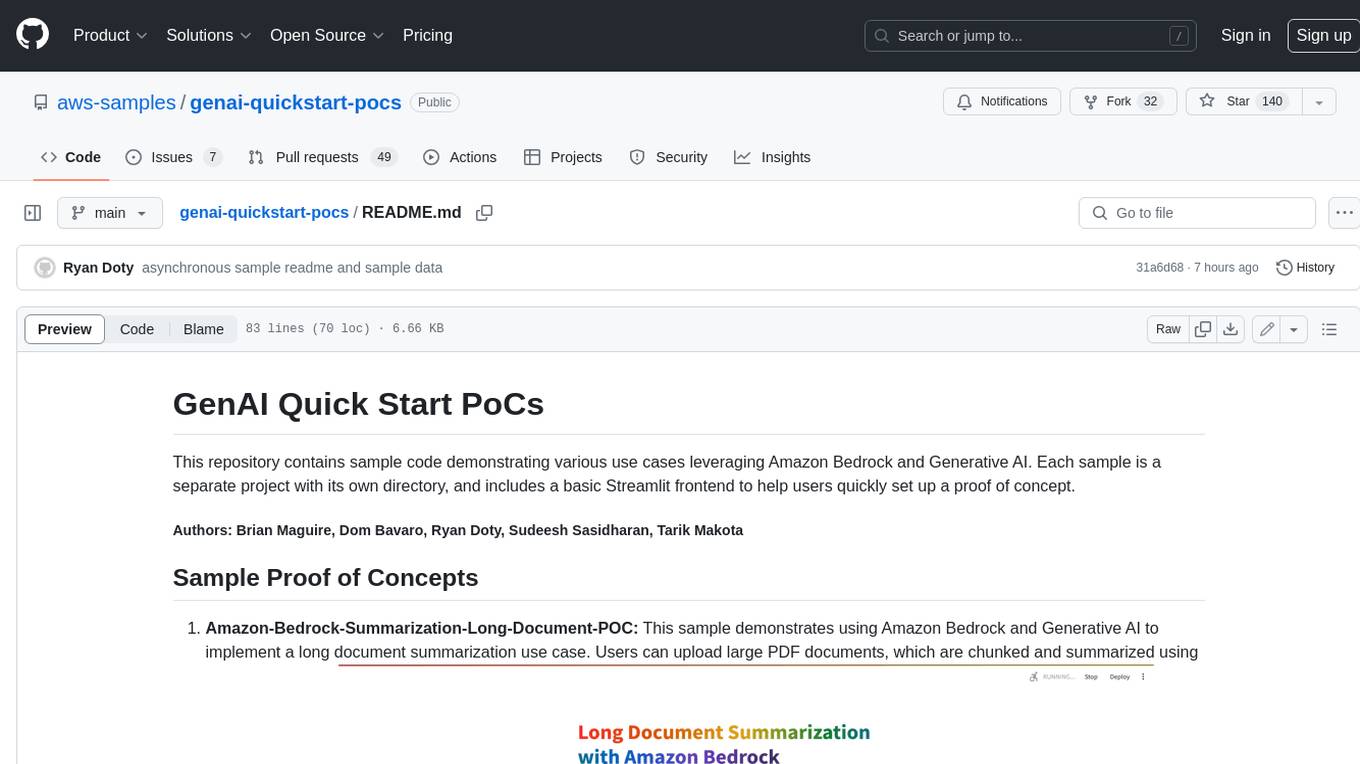
genai-quickstart-pocs
This repository contains sample code demonstrating various use cases leveraging Amazon Bedrock and Generative AI. Each sample is a separate project with its own directory, and includes a basic Streamlit frontend to help users quickly set up a proof of concept.
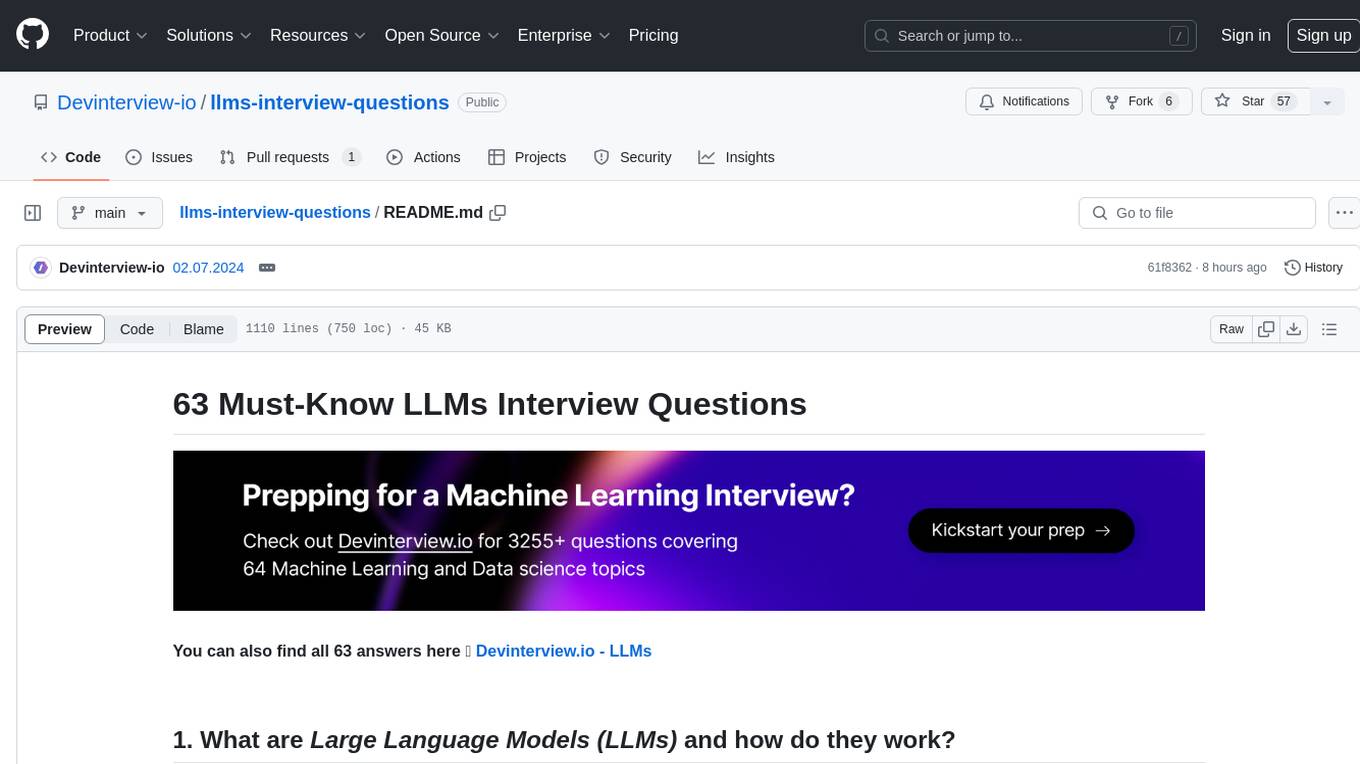
llms-interview-questions
This repository contains a comprehensive collection of 63 must-know Large Language Models (LLMs) interview questions. It covers topics such as the architecture of LLMs, transformer models, attention mechanisms, training processes, encoder-decoder frameworks, differences between LLMs and traditional statistical language models, handling context and long-term dependencies, transformers for parallelization, applications of LLMs, sentiment analysis, language translation, conversation AI, chatbots, and more. The readme provides detailed explanations, code examples, and insights into utilizing LLMs for various tasks.
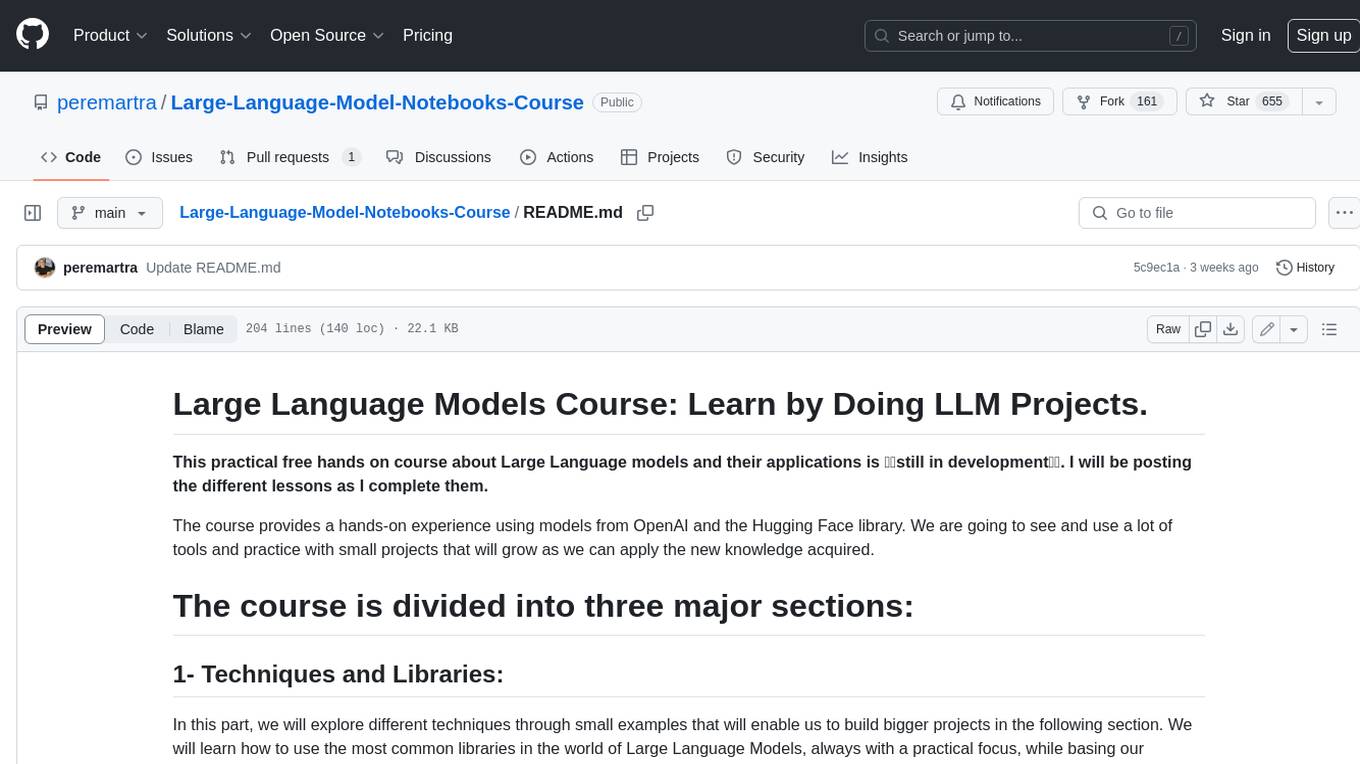
Large-Language-Model-Notebooks-Course
This practical free hands-on course focuses on Large Language models and their applications, providing a hands-on experience using models from OpenAI and the Hugging Face library. The course is divided into three major sections: Techniques and Libraries, Projects, and Enterprise Solutions. It covers topics such as Chatbots, Code Generation, Vector databases, LangChain, Fine Tuning, PEFT Fine Tuning, Soft Prompt tuning, LoRA, QLoRA, Evaluate Models, Knowledge Distillation, and more. Each section contains chapters with lessons supported by notebooks and articles. The course aims to help users build projects and explore enterprise solutions using Large Language Models.
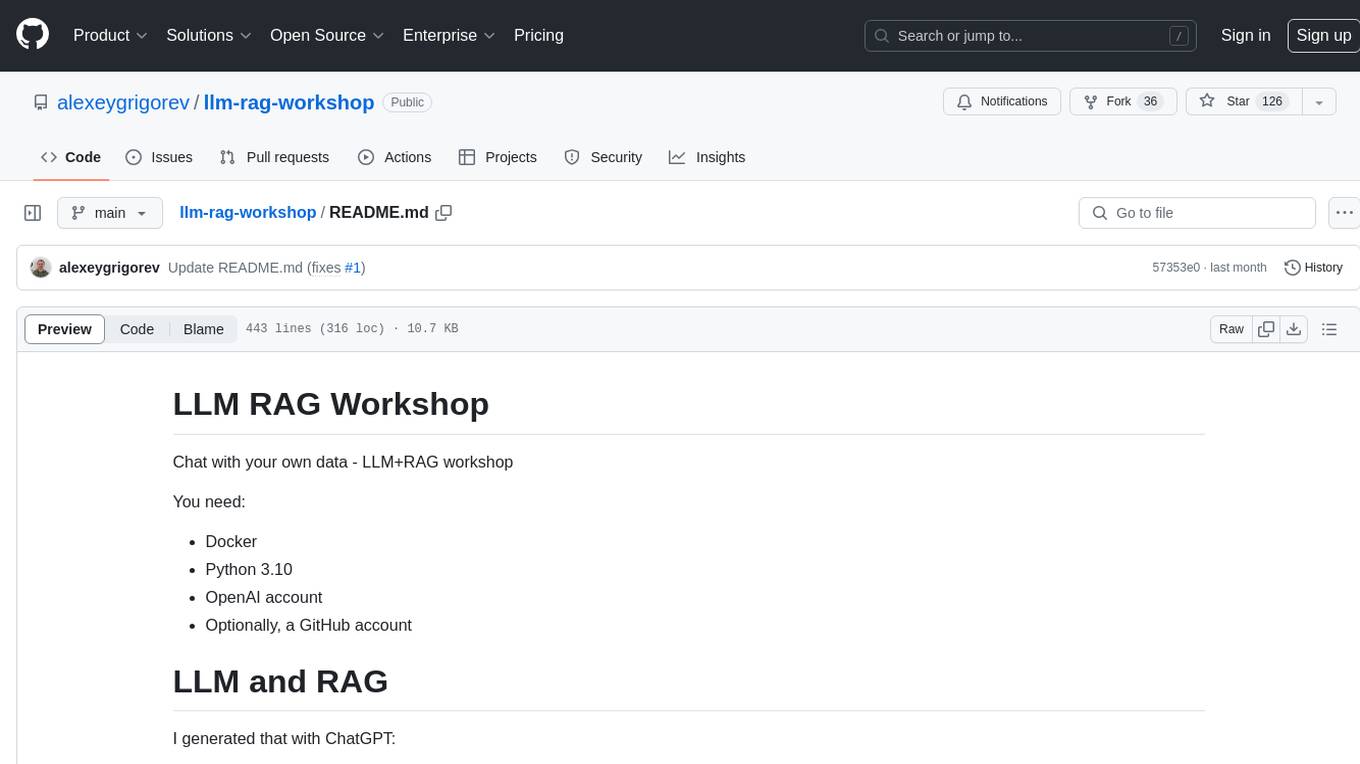
llm-rag-workshop
The LLM RAG Workshop repository provides a workshop on using Large Language Models (LLMs) and Retrieval-Augmented Generation (RAG) to generate and understand text in a human-like manner. It includes instructions on setting up the environment, indexing Zoomcamp FAQ documents, creating a Q&A system, and using OpenAI for generation based on retrieved information. The repository focuses on enhancing language model responses with retrieved information from external sources, such as document databases or search engines, to improve factual accuracy and relevance of generated text.
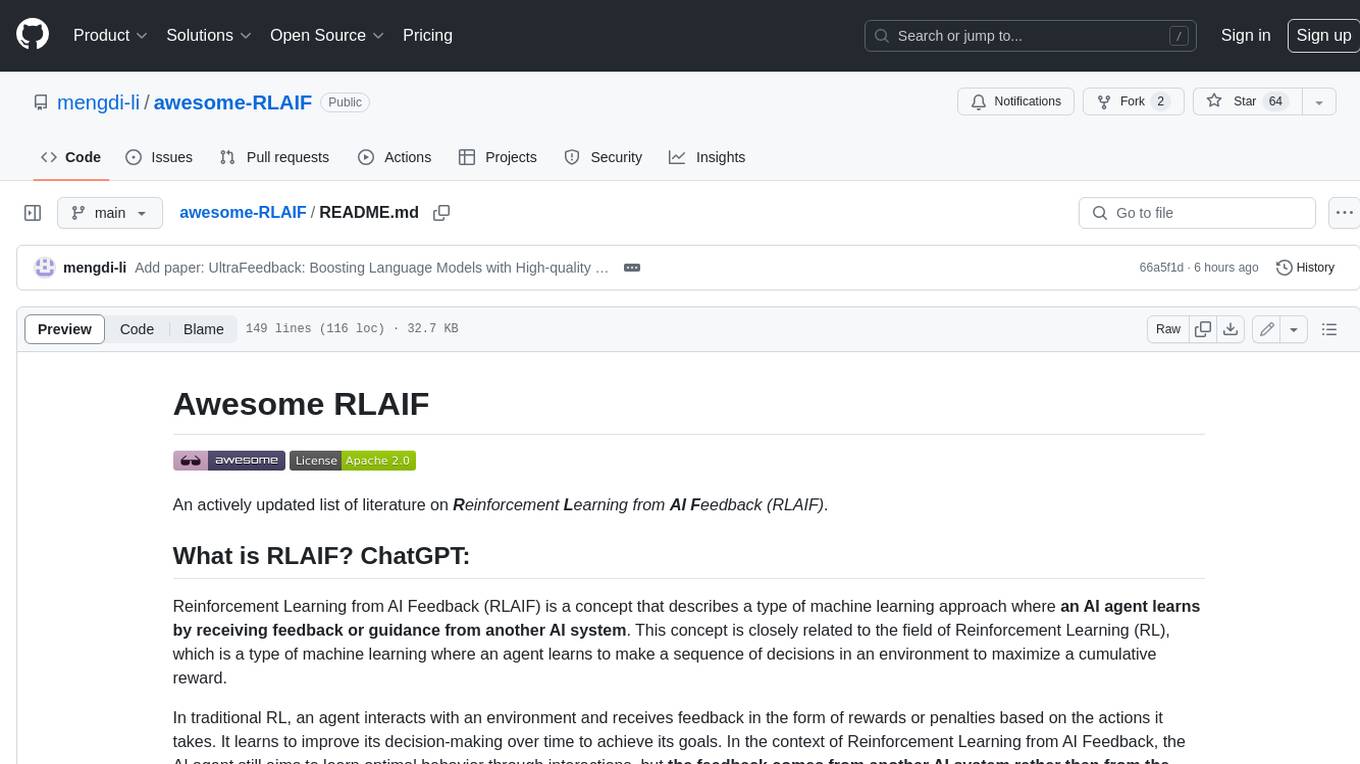
awesome-RLAIF
Reinforcement Learning from AI Feedback (RLAIF) is a concept that describes a type of machine learning approach where **an AI agent learns by receiving feedback or guidance from another AI system**. This concept is closely related to the field of Reinforcement Learning (RL), which is a type of machine learning where an agent learns to make a sequence of decisions in an environment to maximize a cumulative reward. In traditional RL, an agent interacts with an environment and receives feedback in the form of rewards or penalties based on the actions it takes. It learns to improve its decision-making over time to achieve its goals. In the context of Reinforcement Learning from AI Feedback, the AI agent still aims to learn optimal behavior through interactions, but **the feedback comes from another AI system rather than from the environment or human evaluators**. This can be **particularly useful in situations where it may be challenging to define clear reward functions or when it is more efficient to use another AI system to provide guidance**. The feedback from the AI system can take various forms, such as: - **Demonstrations** : The AI system provides demonstrations of desired behavior, and the learning agent tries to imitate these demonstrations. - **Comparison Data** : The AI system ranks or compares different actions taken by the learning agent, helping it to understand which actions are better or worse. - **Reward Shaping** : The AI system provides additional reward signals to guide the learning agent's behavior, supplementing the rewards from the environment. This approach is often used in scenarios where the RL agent needs to learn from **limited human or expert feedback or when the reward signal from the environment is sparse or unclear**. It can also be used to **accelerate the learning process and make RL more sample-efficient**. Reinforcement Learning from AI Feedback is an area of ongoing research and has applications in various domains, including robotics, autonomous vehicles, and game playing, among others.
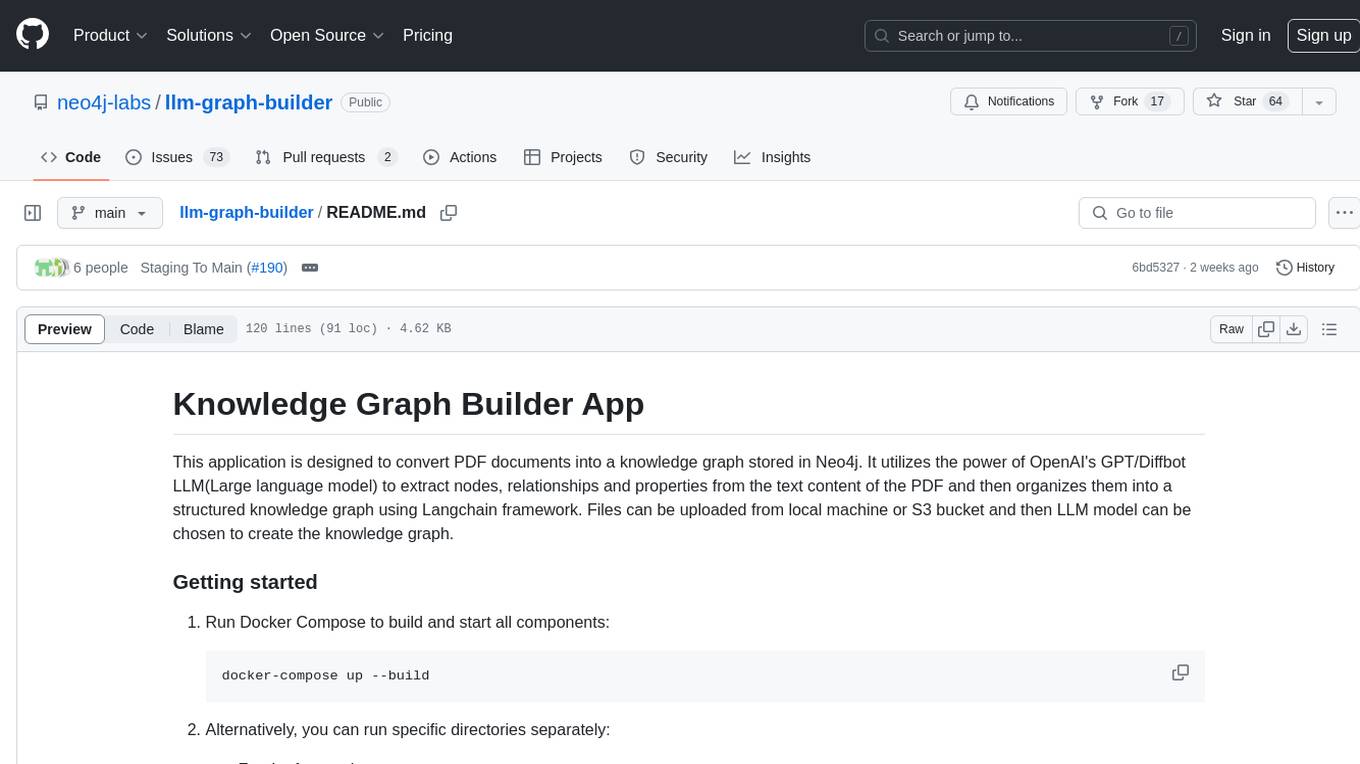
llm-graph-builder
Knowledge Graph Builder App is a tool designed to convert PDF documents into a structured knowledge graph stored in Neo4j. It utilizes OpenAI's GPT/Diffbot LLM to extract nodes, relationships, and properties from PDF text content. Users can upload files from local machine or S3 bucket, choose LLM model, and create a knowledge graph. The app integrates with Neo4j for easy visualization and querying of extracted information.

NaLLM
The NaLLM project repository explores the synergies between Neo4j and Large Language Models (LLMs) through three primary use cases: Natural Language Interface to a Knowledge Graph, Creating a Knowledge Graph from Unstructured Data, and Generating a Report using static and LLM data. The repository contains backend and frontend code organized for easy navigation. It includes blog posts, a demo database, instructions for running demos, and guidelines for contributing. The project aims to showcase the potential of Neo4j and LLMs in various applications.
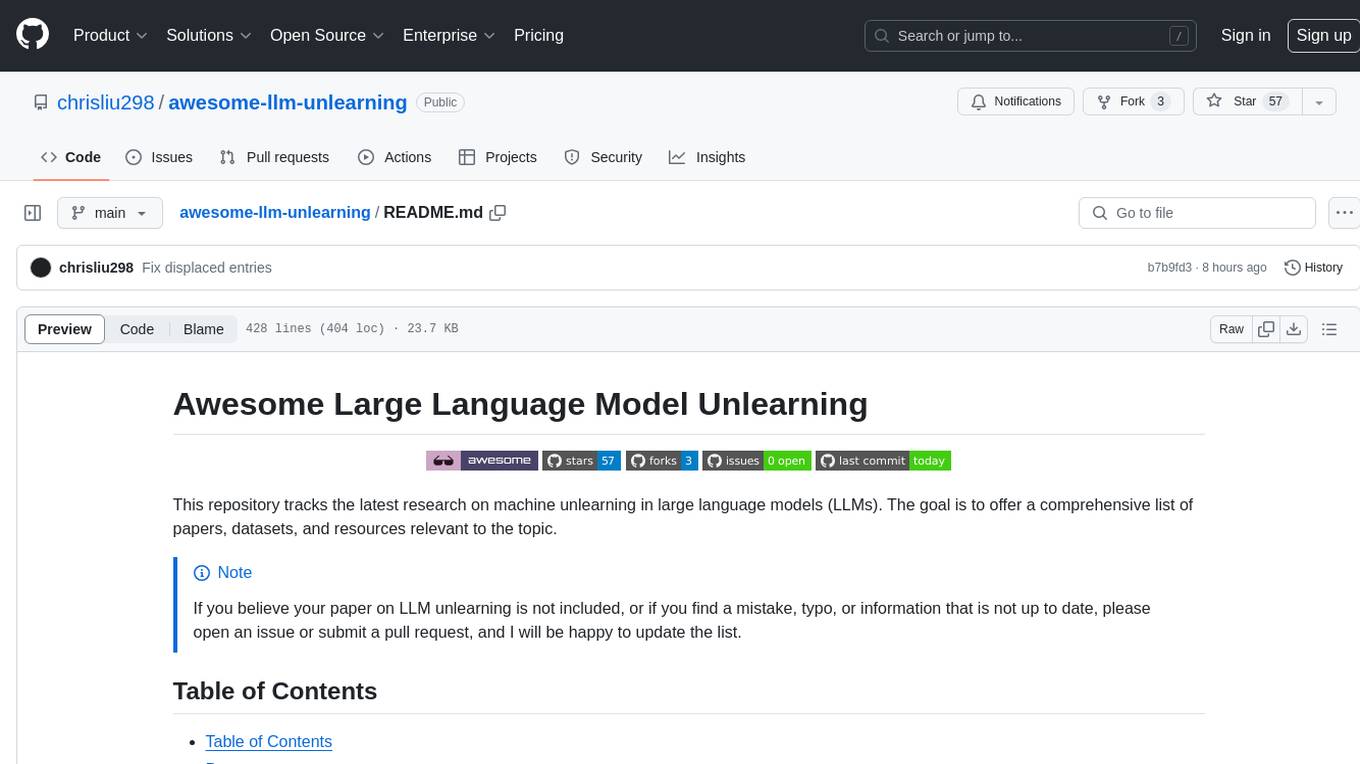
awesome-llm-unlearning
This repository tracks the latest research on machine unlearning in large language models (LLMs). It offers a comprehensive list of papers, datasets, and resources relevant to the topic.
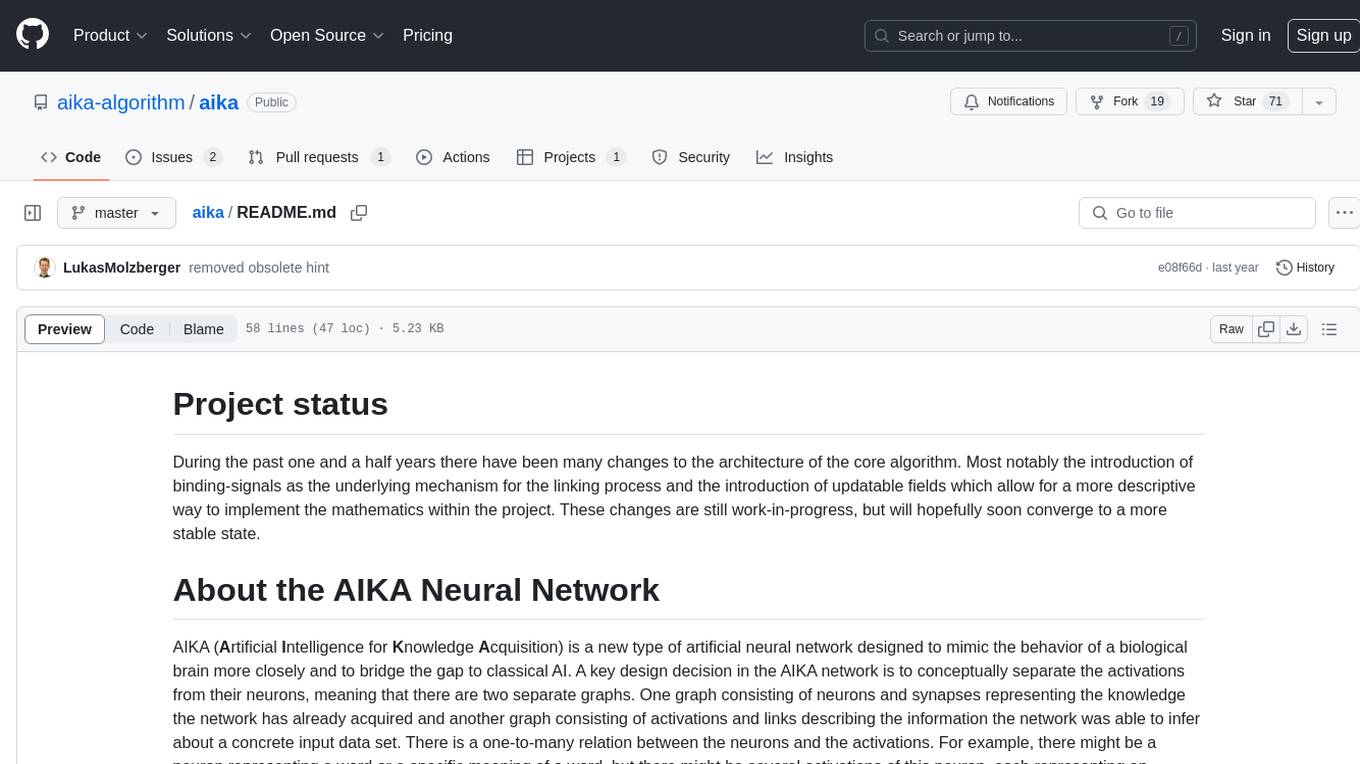
aika
AIKA (Artificial Intelligence for Knowledge Acquisition) is a new type of artificial neural network designed to mimic the behavior of a biological brain more closely and bridge the gap to classical AI. The network conceptually separates activations from neurons, creating two separate graphs to represent acquired knowledge and inferred information. It uses different types of neurons and synapses to propagate activation values, binding signals, causal relations, and training gradients. The network structure allows for flexible topology and supports the gradual population of neurons and synapses during training.
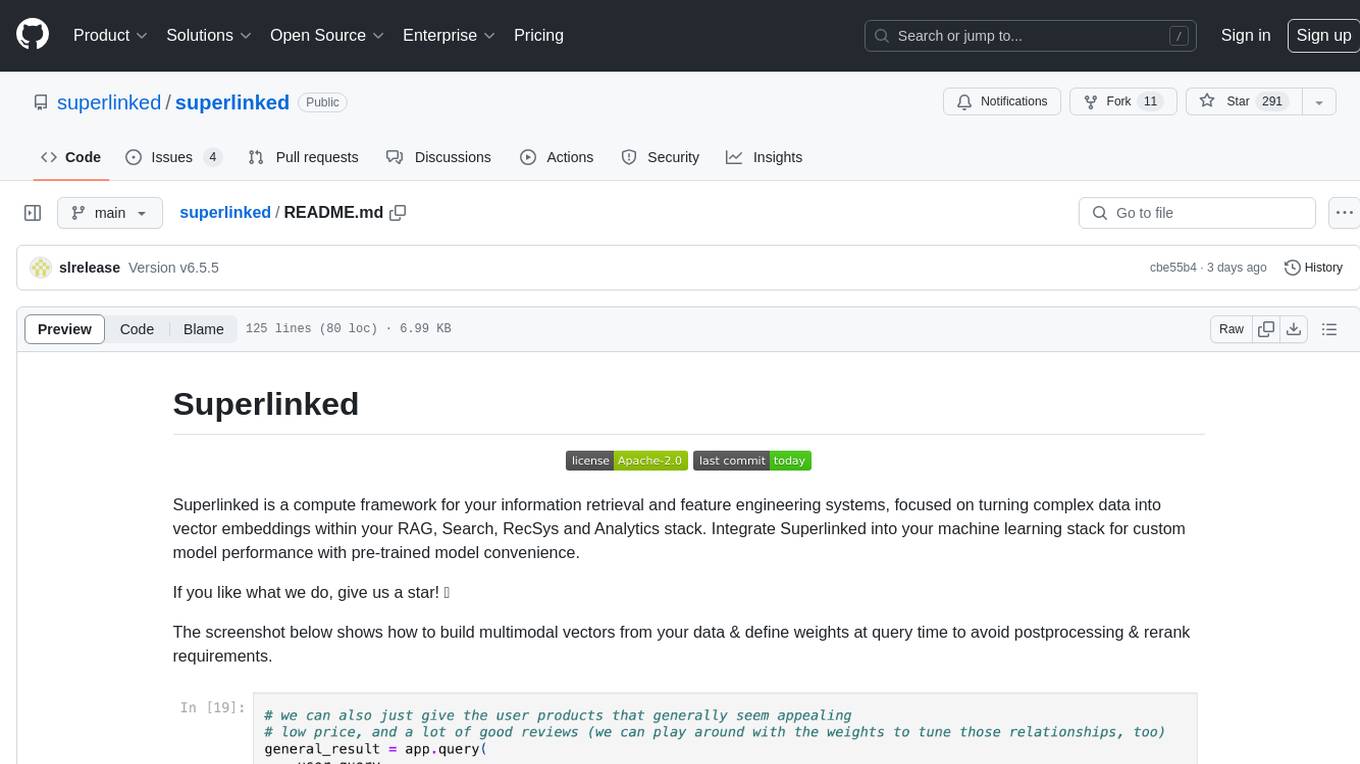
superlinked
Superlinked is a compute framework for information retrieval and feature engineering systems, focusing on converting complex data into vector embeddings for RAG, Search, RecSys, and Analytics stack integration. It enables custom model performance in machine learning with pre-trained model convenience. The tool allows users to build multimodal vectors, define weights at query time, and avoid postprocessing & rerank requirements. Users can explore the computational model through simple scripts and python notebooks, with a future release planned for production usage with built-in data infra and vector database integrations.
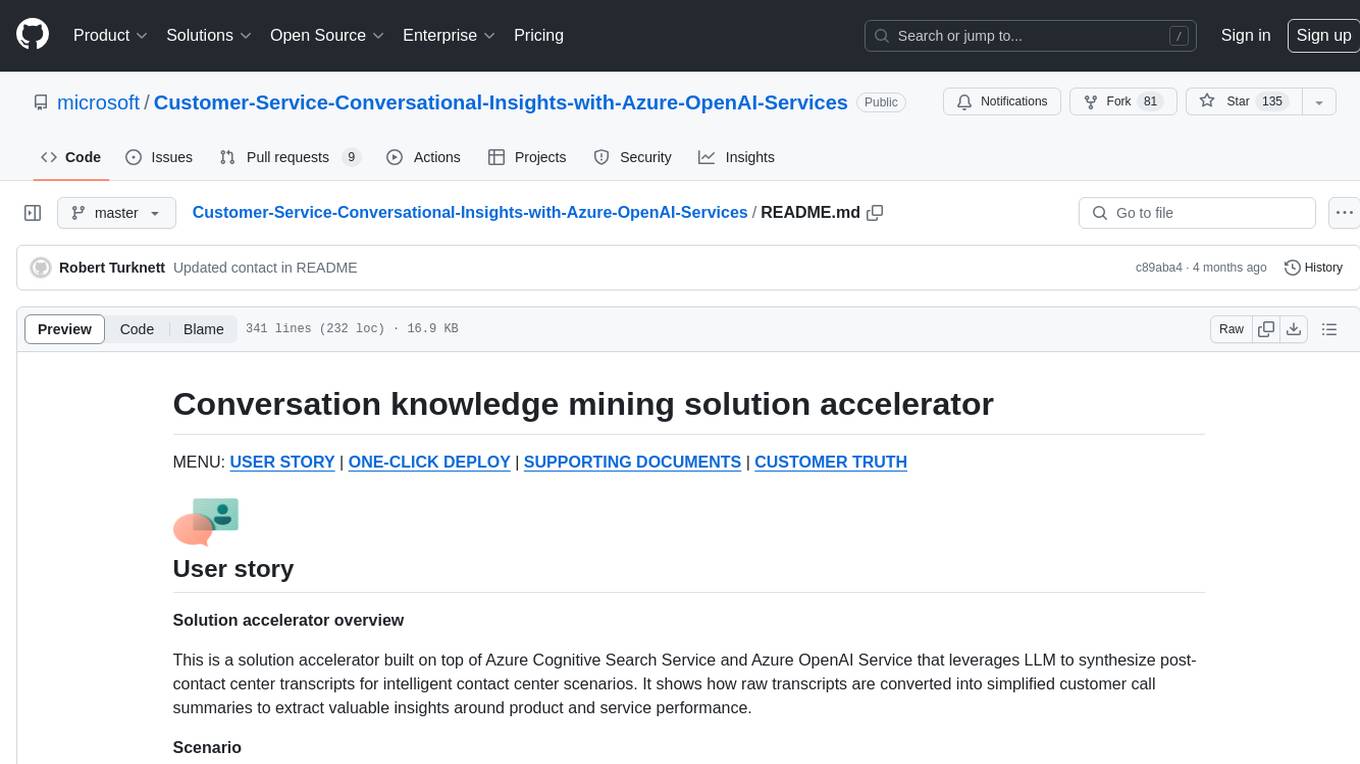
Customer-Service-Conversational-Insights-with-Azure-OpenAI-Services
This solution accelerator is built on Azure Cognitive Search Service and Azure OpenAI Service to synthesize post-contact center transcripts for intelligent contact center scenarios. It converts raw transcripts into customer call summaries to extract insights around product and service performance. Key features include conversation summarization, key phrase extraction, speech-to-text transcription, sensitive information extraction, sentiment analysis, and opinion mining. The tool enables data professionals to quickly analyze call logs for improvement in contact center operations.

